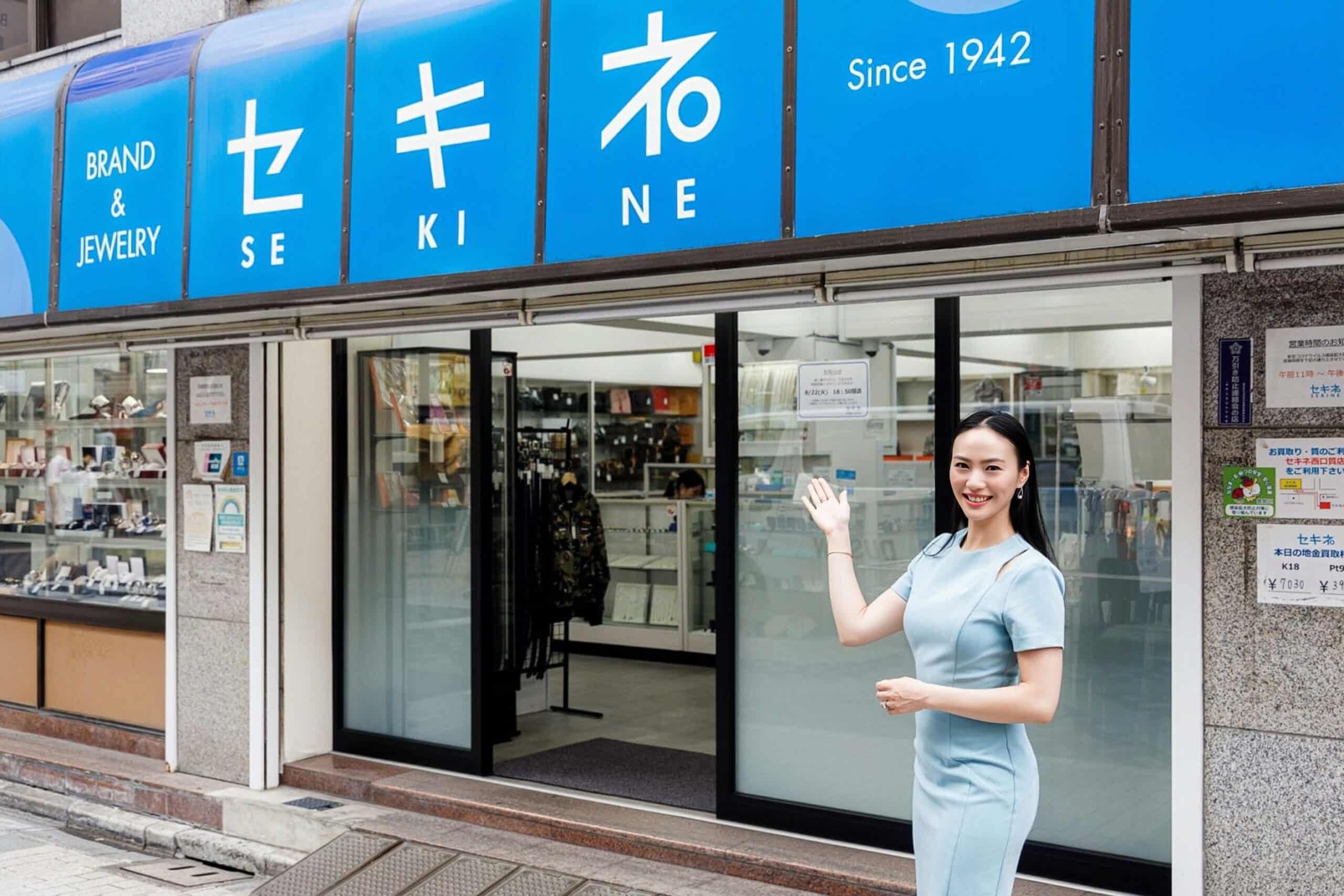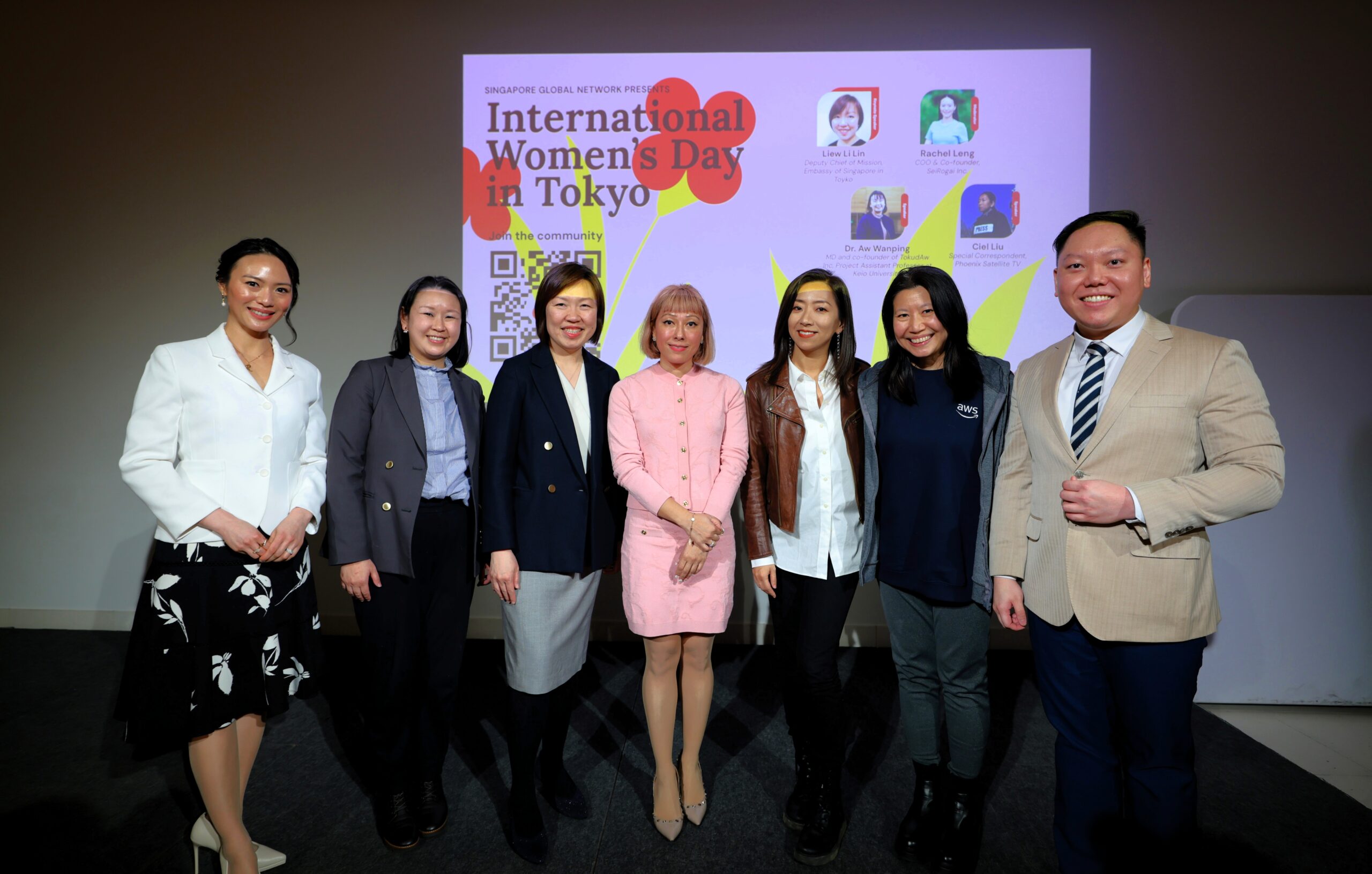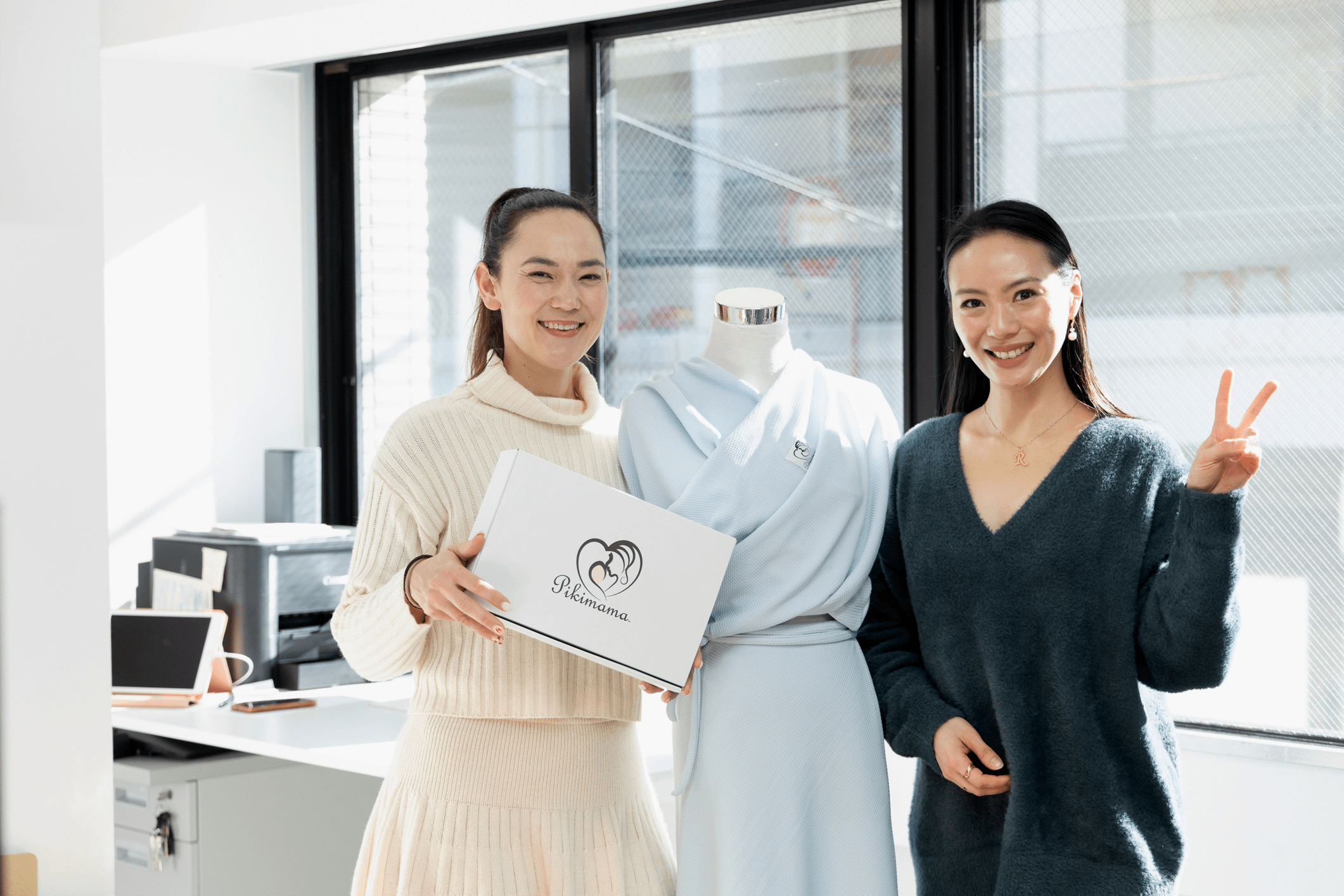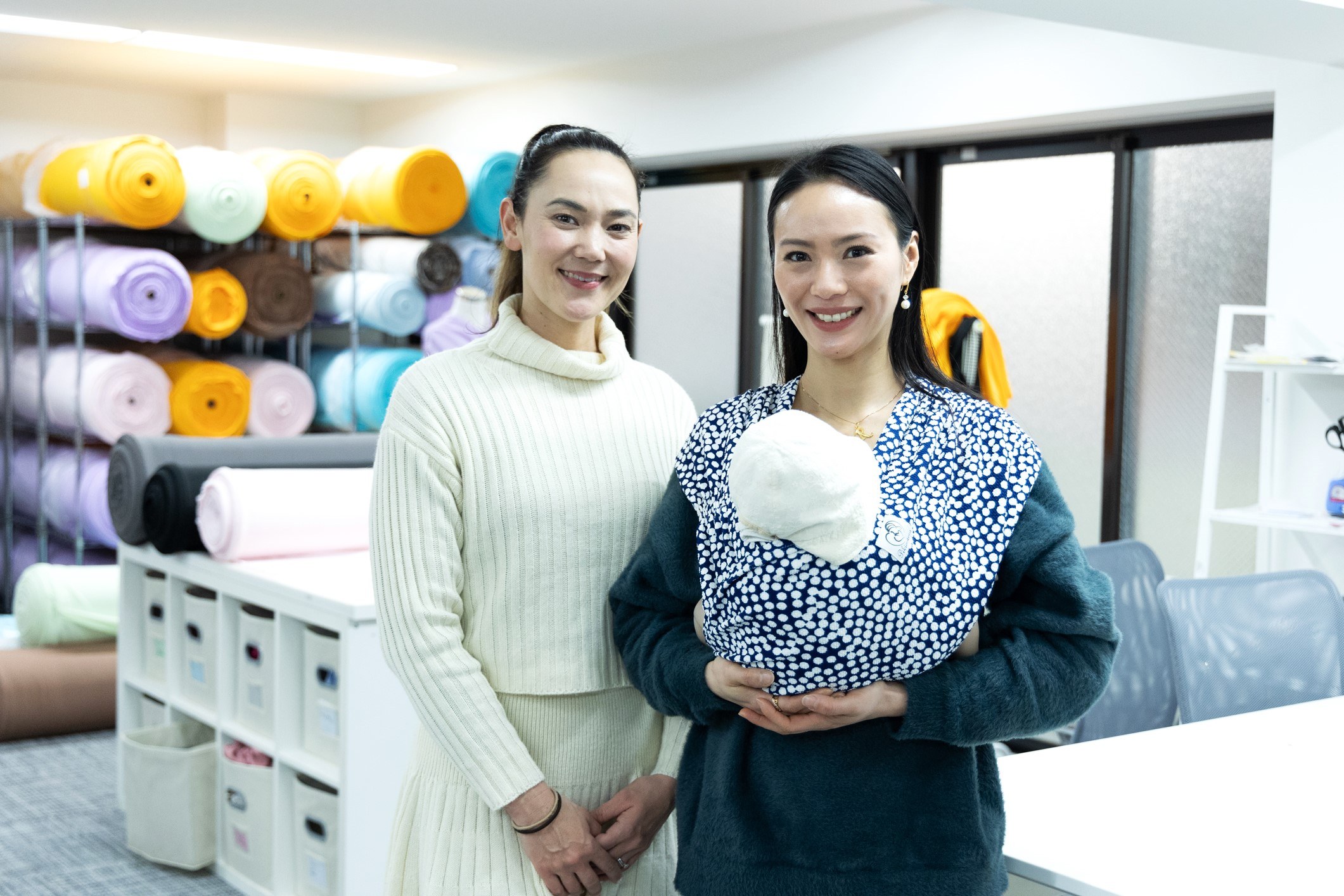The worldwide shift towards sustainable fashion and conscious consumption has sparked a surge in demand for pre-owned luxury items as an eco-friendly alternative to traditional retail. I’ve repeatedly heard whispers of Tokyo’s vibrant secondhand luxury scene. Known globally as a fashion hub and the world’s largest metropolis, Tokyo offers shoppers the chance to discover rare, high-quality items that have been impeccably preserved.
To quench my curiosity about the inner workings of this intriguing industry, I decided to pay a visit to my friend, Mr. Kazuyuki Sekine, the third-generation CEO of Tokyo Sekine Corporation that owns and operates the Sekine Shichiya stores, a respected establishment that bridges the gap between pawnshop and pre-loved luxury boutique.
At the Sekine Ikebukuro West Gate Store, one of the oldest pawnshops and secondhand luxury stores in the city, I had the opportunity to learn from him and his expert team.
Join me as we delve into the realm of secondhand luxury shopping in Japan at the Sekine Pawnshop in the heart of Tokyo’s vibrant Ikebukuro district! We’ll explore their rigorous authentication process that guarantees the authenticity of every item and share insider tips on hunting down amazing vintage luxury bargains. Read on for your expert guide to pre-loved luxury shopping in Tokyo!
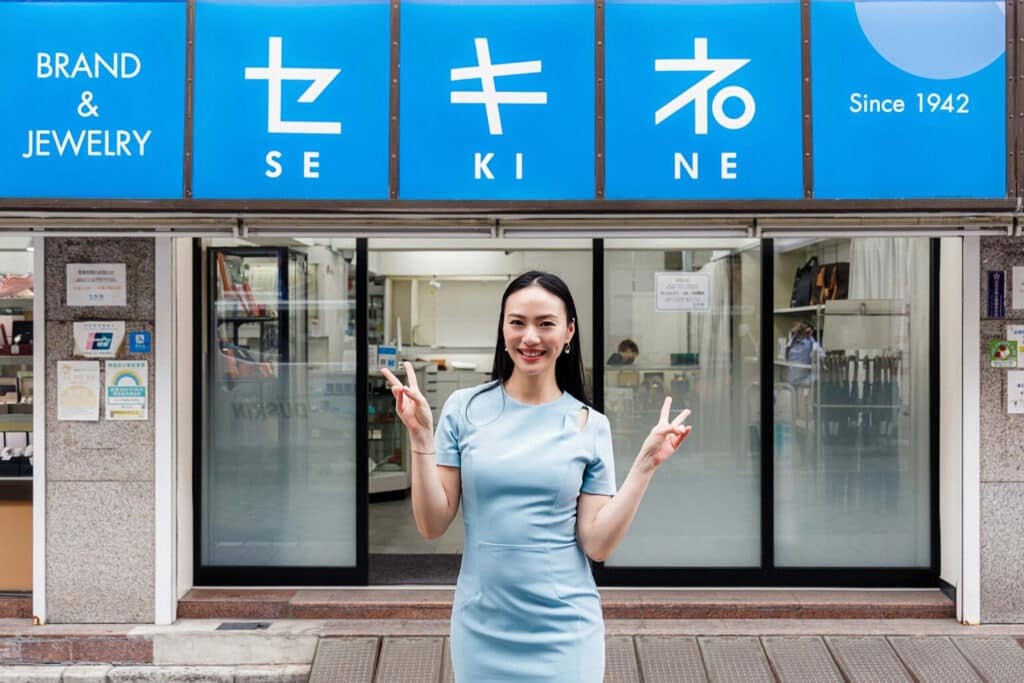
日本語はここをクリックしてご覧ください。
- Uncover Tokyo’s best-kept secret for pre-loved luxury shopping – the Sekine Pawnshop
- Unveiling the Legacy of Sekine and the History of Pawnshops in Japan
- Understanding the Ranking System for Secondhand Luxury Goods in Japan
- Dedication to Quality and Value: In-House Expert Buyers and Appraisers
- Real or Fake? – How to Authenticate a Louis Vuitton Bag
- Taking It A Step Further: Impeccable Gift Wrapping
- Discover Tokyo’s Pre-loved Luxury at the Sekine Pawnshop’s Ikebukuro West Gate Store
- Sekine Pawnshop Store Information
Uncover Tokyo’s best-kept secret for pre-loved luxury shopping – the Sekine Pawnshop
Entering the World of Secondhand Luxury in Japan
Immerse yourself in a world where luxury, history, and authenticity converge.
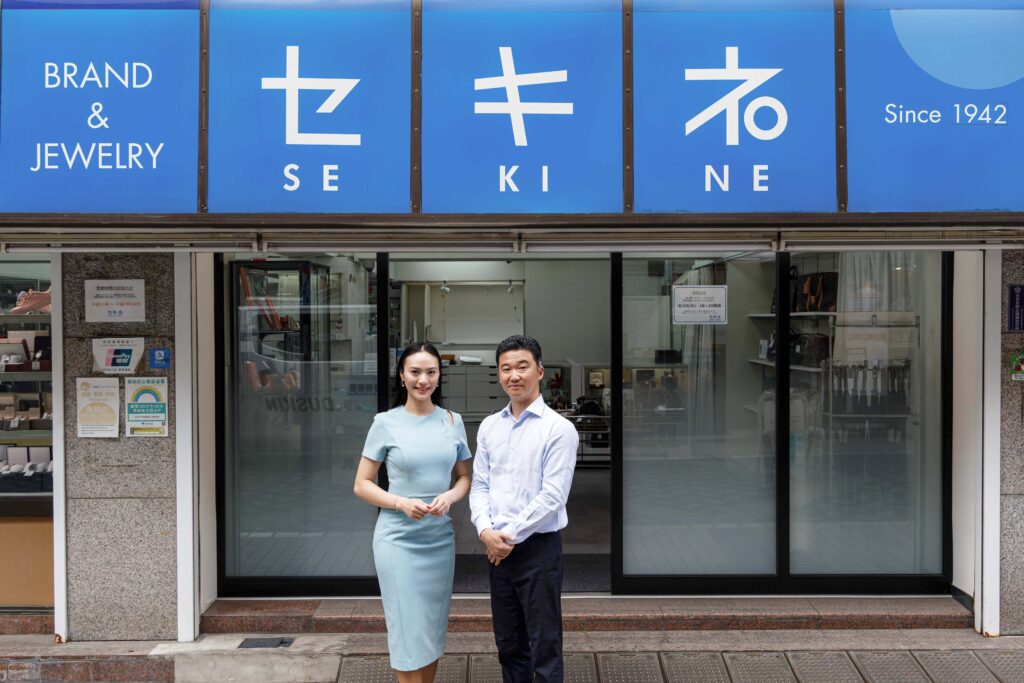
Nestled in the bustling Ikebukuro district of Tokyo, you’ll find a hidden gem – the Sekine Pawnshop’s Ikebukuro West Gate Store. The Japanese are known for their meticulous care of their belongings, often resulting in secondhand items being in excellent condition when sold. Consequently, Tokyo has emerged as a top destination for pre-owned luxury shopping, boasting hundreds of stores citywide with abundant inventories. However, navigating this vast market to find authentic products and worthwhile deals can be daunting.
Sekine Shichiya, one of Tokyo’s oldest and most respected pawnshops with over 80 years of history, offers an unrivaled experience for foreign visitors seeking genuine pre-loved luxury goods. While “pawnshops” in other countries may conjure negative images of shabby corner stores or shady businesses, in Japan they are known as “shichiya” (質屋) and serve as the trusted hubs for locals to buy and sell secondhand luxury branded goods, known as “chūkōhin” (中古品) or simply “medium old” items. Pawnshops in Japan differ from thrift stores or “recycle shops” (リサイクルショップ) in that they specialize in selling high-quality pre-loved luxury goods.
Getting to the Sekine Ikebukuro West Gate Store
After just a 2-minute walk from any of the Western side exits of Ikebukuro station, I was quickly able to find the entrance to the store.
セキネ池袋西口販売店 (Sekine Ikebukuro West Gate Store)
1 Chome-36-2 Nishiikebukuro, Toshima City, Tokyo 171-0021

At present, the store name is only available in Japanese on Google Maps, but you can find the way by clicking on the Google Maps Link here, or checking out the map below.
Mr. Sekine warmly welcomed me into his store, where he introduced me to the store manager, Ms. Suzuki, along with the dedicated staff operating the Ikebukuro store. As I stepped inside, I couldn’t help but be impressed by the incredible variety of goods on display!
Many popular secondhand luxury shops in Japan tend to specialize exclusively in items like bags or watches, such as BRANDFIRST or Brand Off for designer purses and HOUSEKIHIROBA or The Watch Company (TWC) for watches, but the Sekine Ikebukuro West Store breaks the mold. At Sekine, you’ll find a captivating array of treasures, from exquisite high-end watches and an extensive selection of bags and wallets to designer jewelry that will leave you in awe.
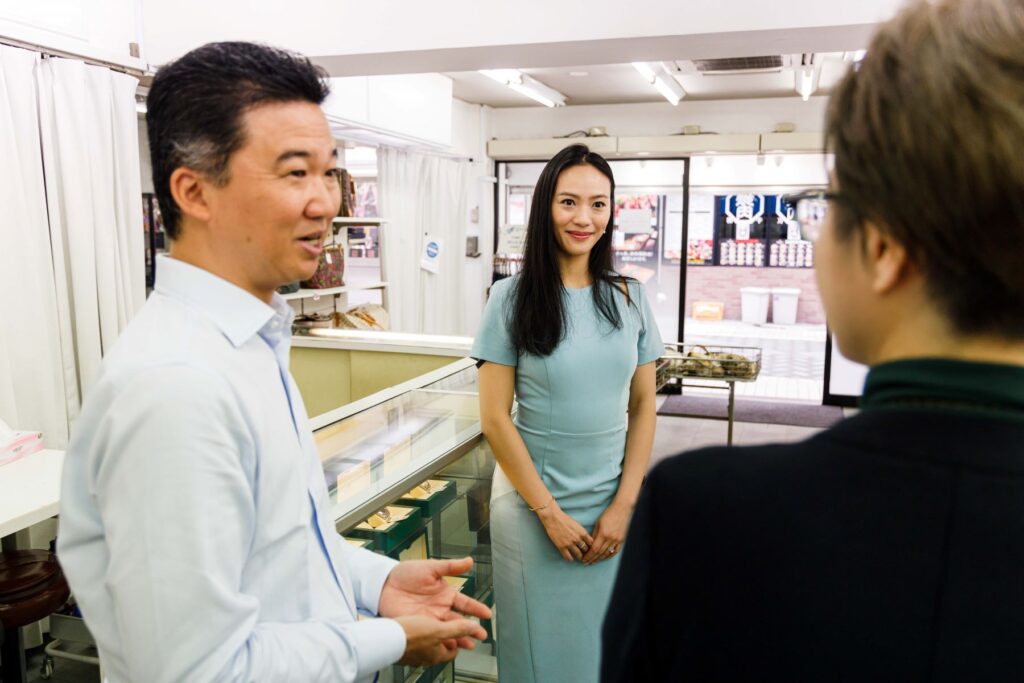
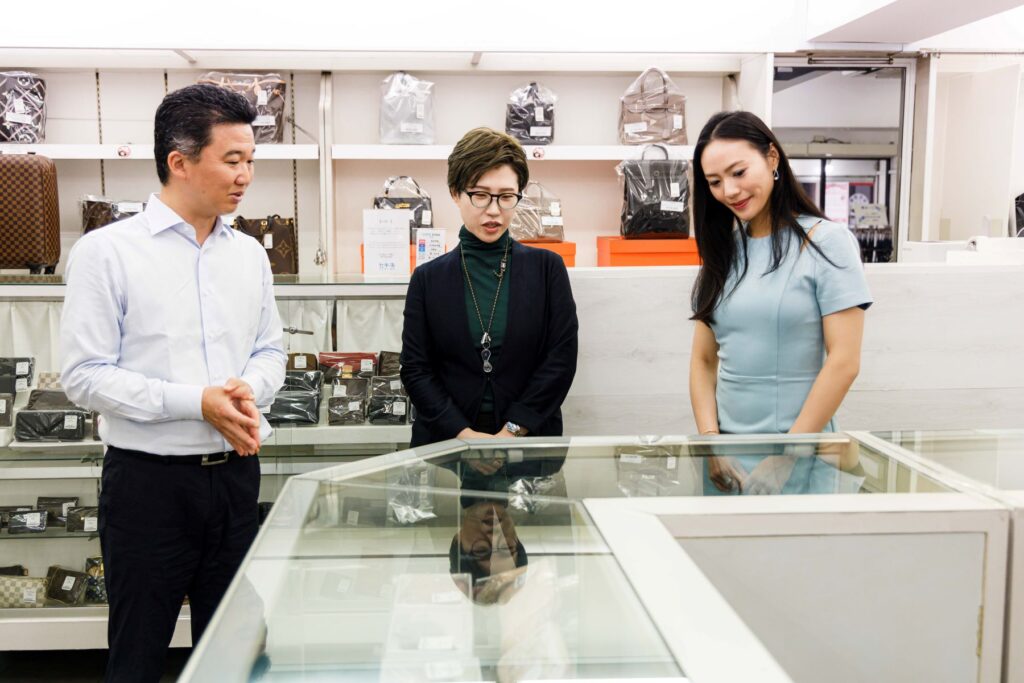
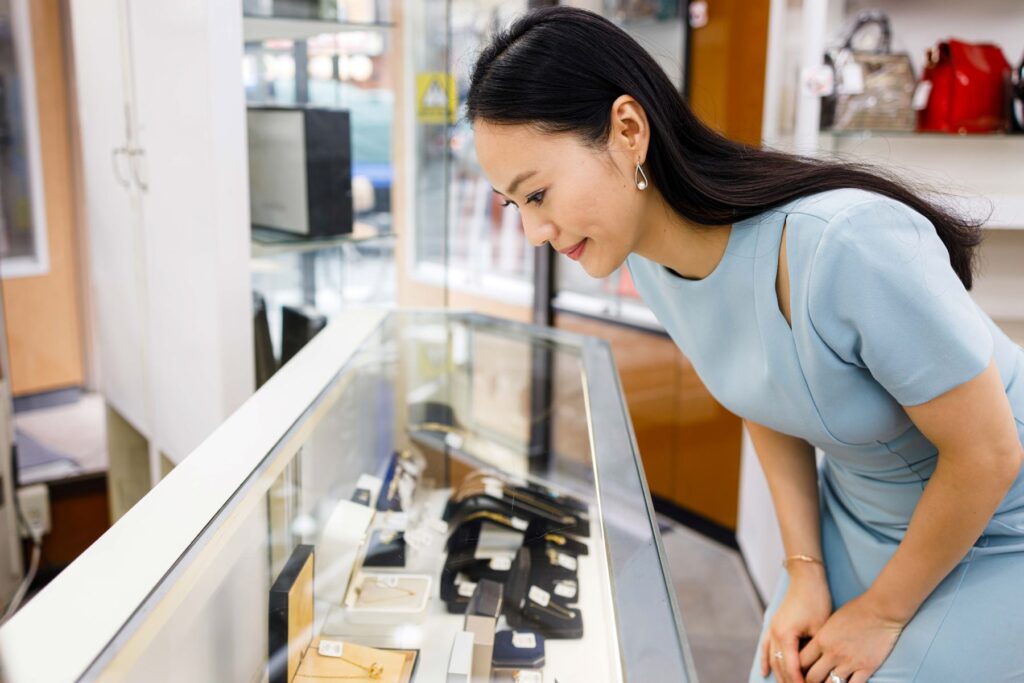
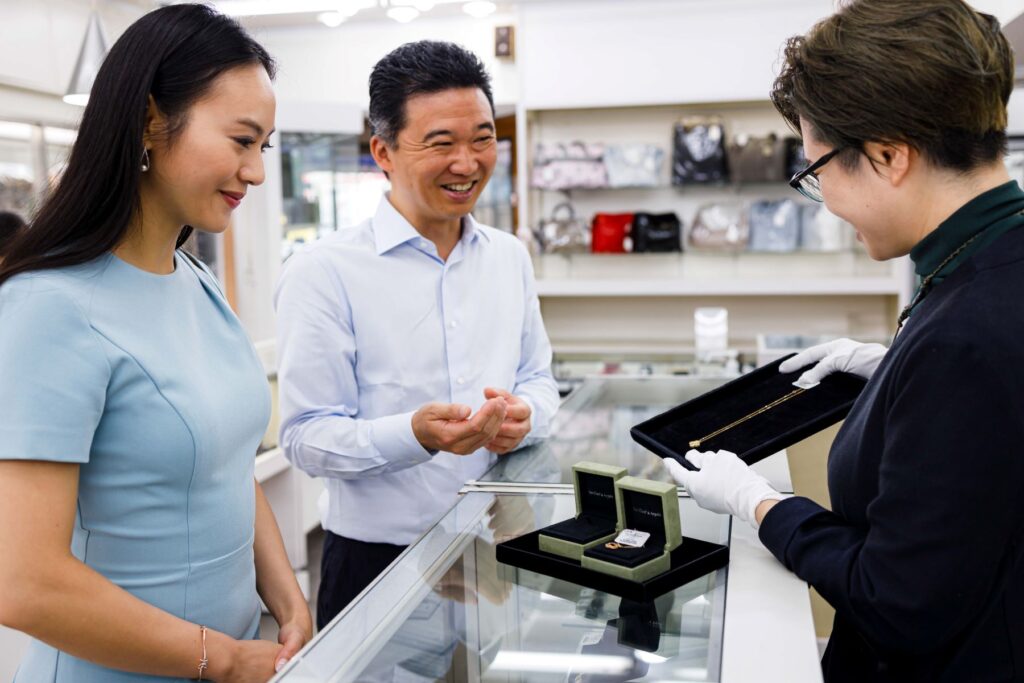
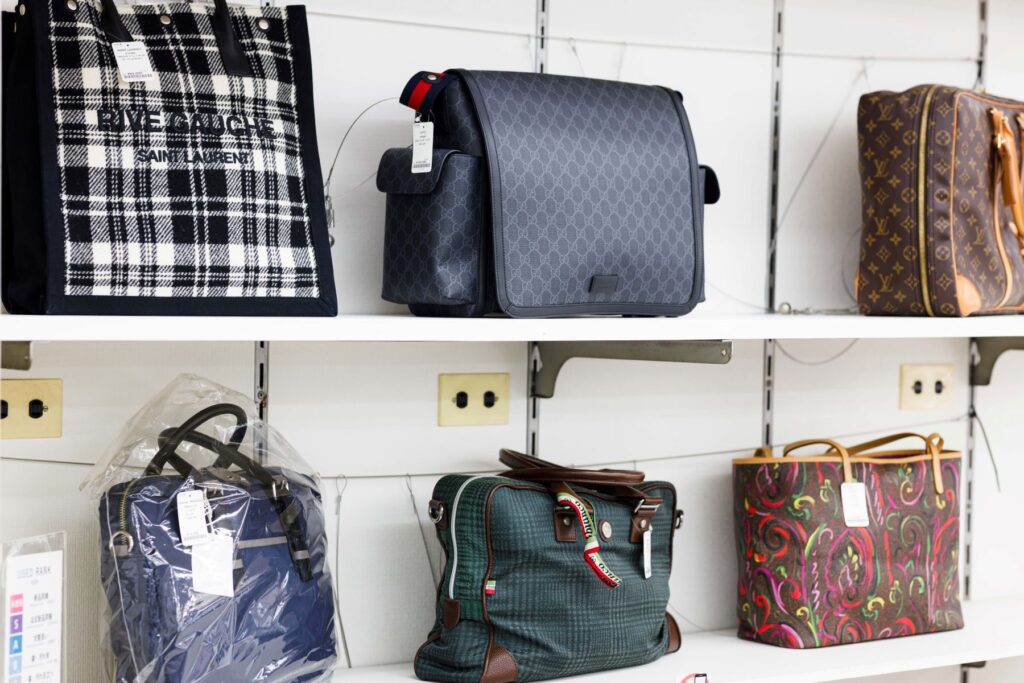
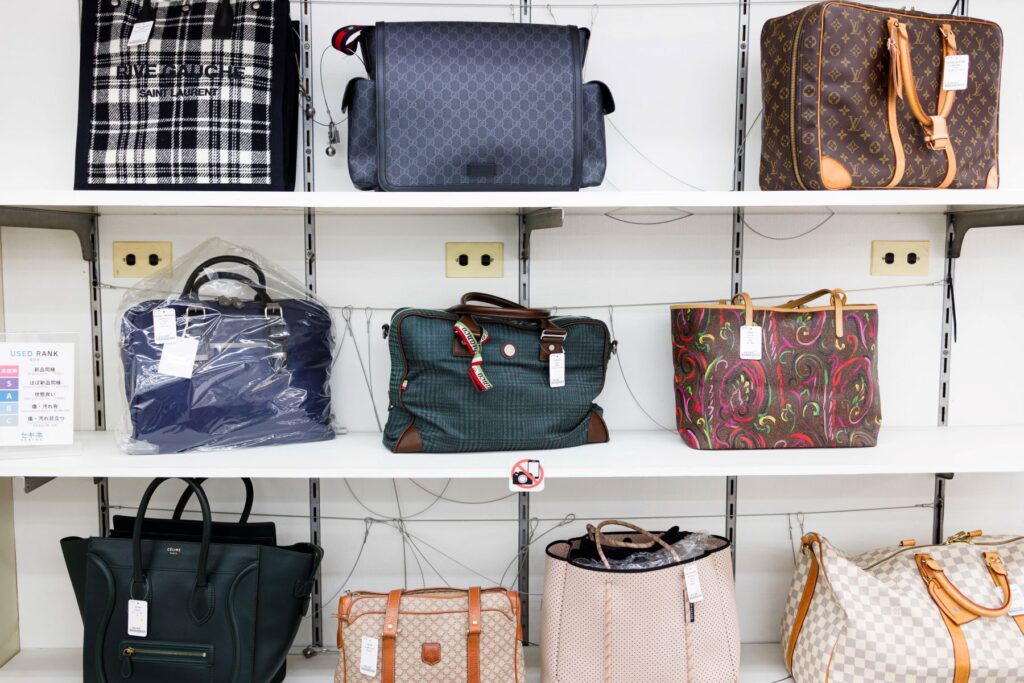
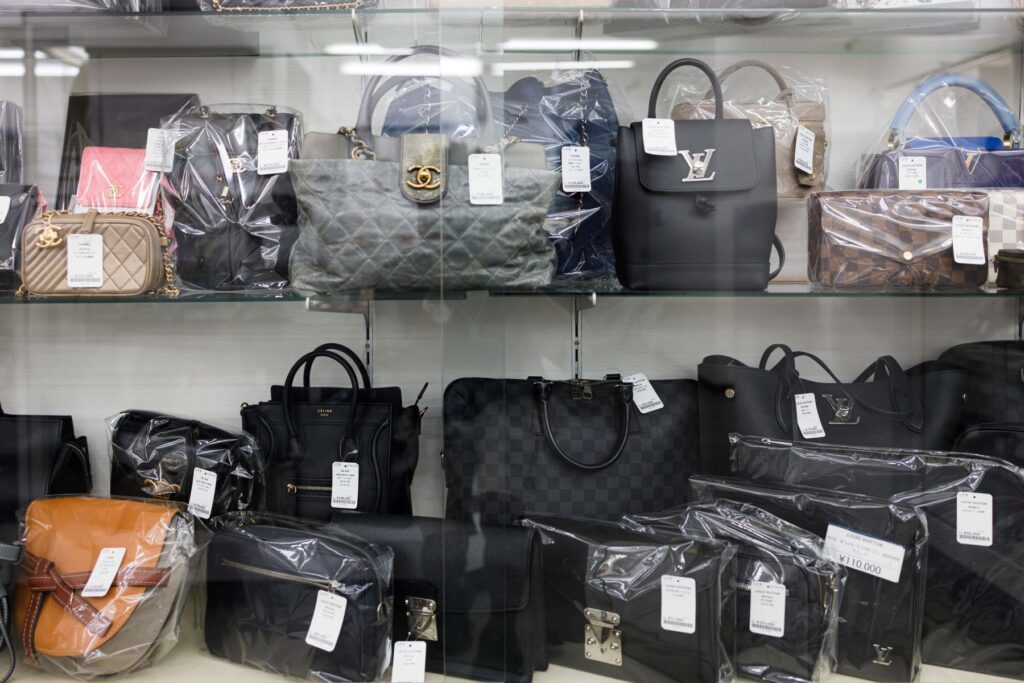
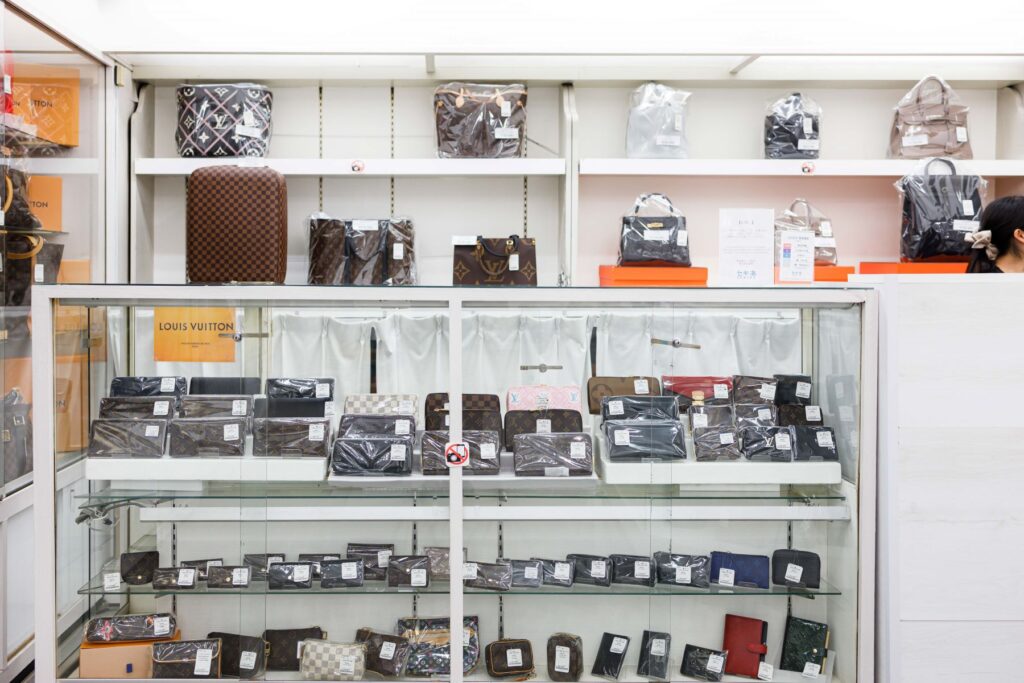
The true showstopper, however, was their collection of secondhand branded bags. Sekine Pawnshop’s Ikebukuro West Gate Store boasts an extensive assortment of designer purses, featuring some of the most sought-after labels like Hermes, Chanel, Fendi, Celine, and Louis Vuitton. What sets them apart is their commitment to helping bag collectors find their coveted treasures. You can even make a specific request, and the Sekine staff will go above and beyond to help you hunt it down!
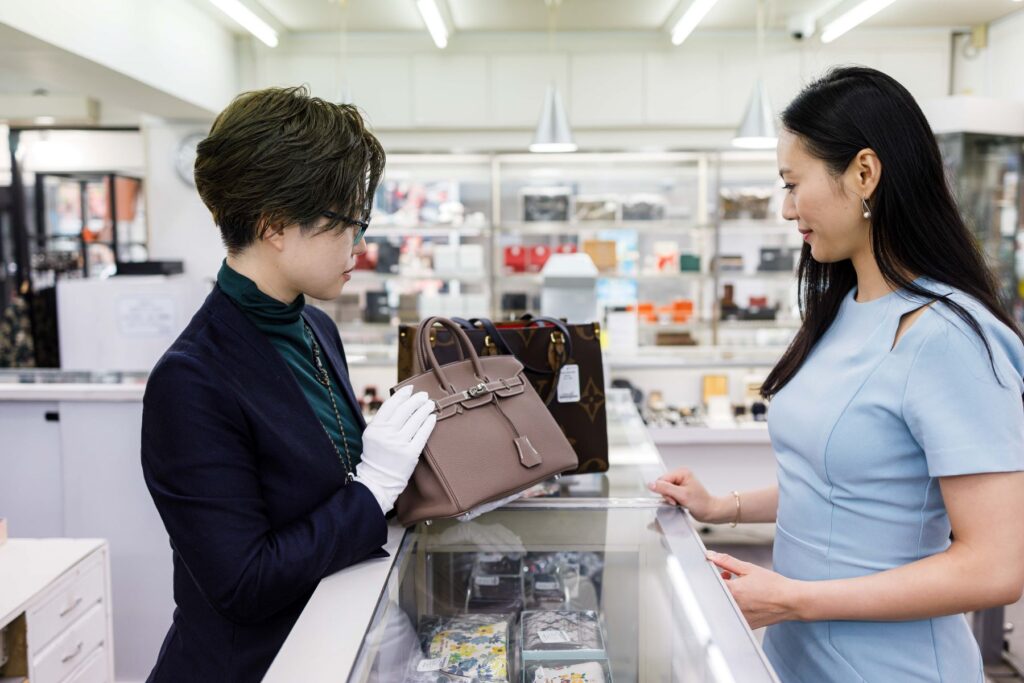
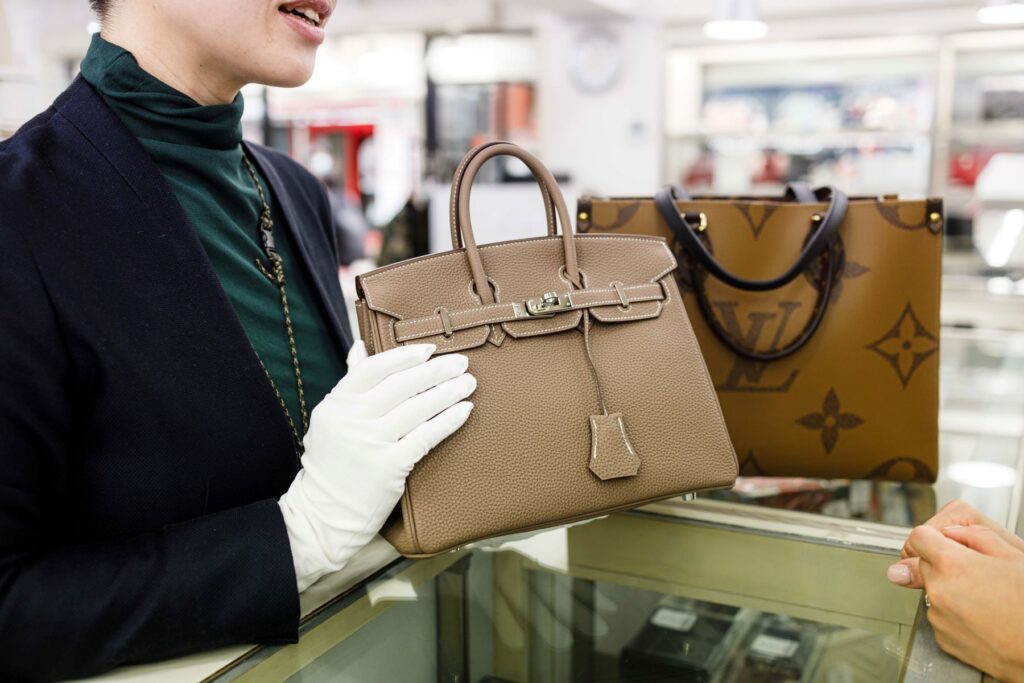
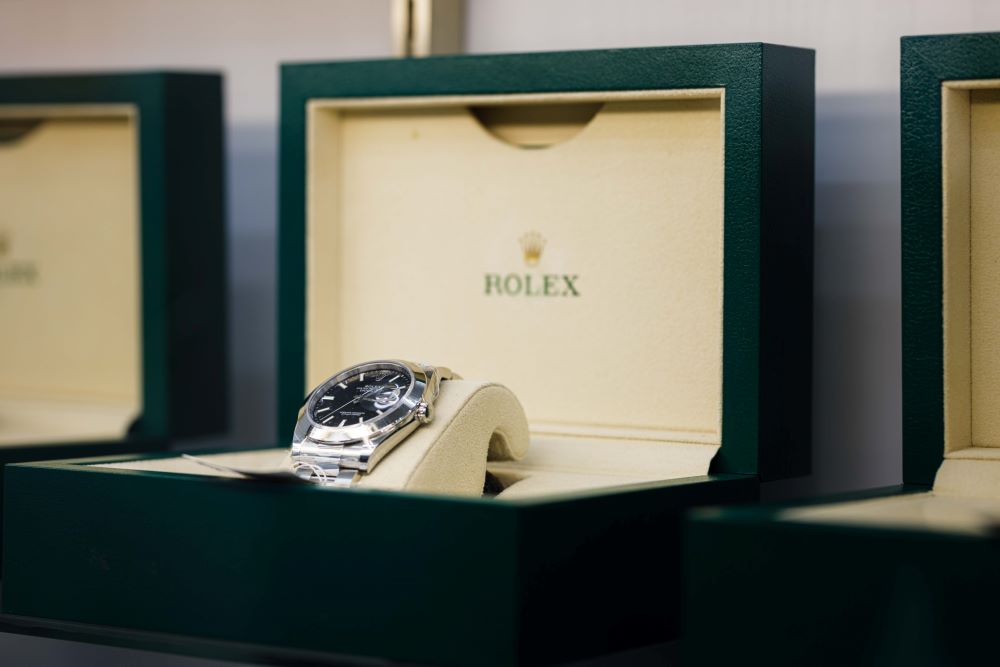
And if you’re an avid watch collector, prepare to be delighted. Sekine offers an impressive selection of authentic designer watches, all at remarkably affordable prices. Among their offerings, you’ll find brands like Rolex, Omega, Patek Philippe, Hublot, and Cartier, making Sekine a true paradise for watch enthusiasts.

Tax-Free Secondhand Luxury Shopping
As if the allure of acquiring some of Japan’s finest pre-loved luxury goods wasn’t enticing enough, foreign tourists can enjoy an extra benefit when shopping at Sekine: duty-free shopping that grants them a 10% consumption tax exemption on genuine secondhand luxury products!
To qualify for this tax-free privilege, shoppers simply need to present their passport at the time of purchase, be staying in Japan for no more than 6 months, and ensure that the verification seal is stamped on their passport upon entry to the Land of the Rising Sun. Shop in style and leave with more savings in your pocket! 🌟🛍️ #TaxFreeLuxury #SecondhandLuxuryInJapan
Unveiling the Legacy of Sekine and the History of Pawnshops in Japan
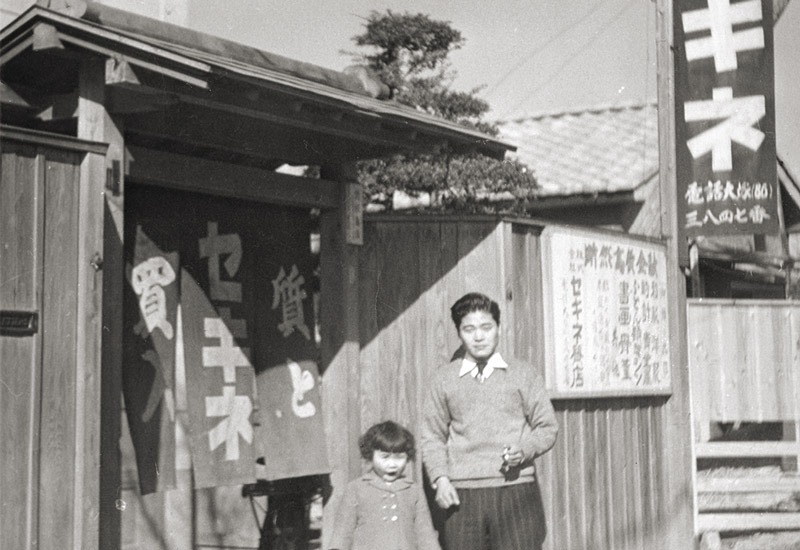
The Sekine Pawnshop has a long and rich history that dates back to 1942, when Mr. Shimaji Sekine (pictured above), the grandfather of the current CEO Mr. Kazuyuki Sekine, opened his first shop in Ikebukuro. Since then, Sekine has always valued their customers’ precious items with honesty and respect, and has always aimed to provide the best service and support for their comfort. Sekine has earned the trust and gratitude of many customers over the past 80 years, and has become one of the most reputable and enduring names in the industry. Now, with branches near Shinjuku and Shibuya stations in central Tokyo, Sekine continues to uphold its commitment to customer satisfaction, offering friendly and attentive service and explaining their products with care and detail.
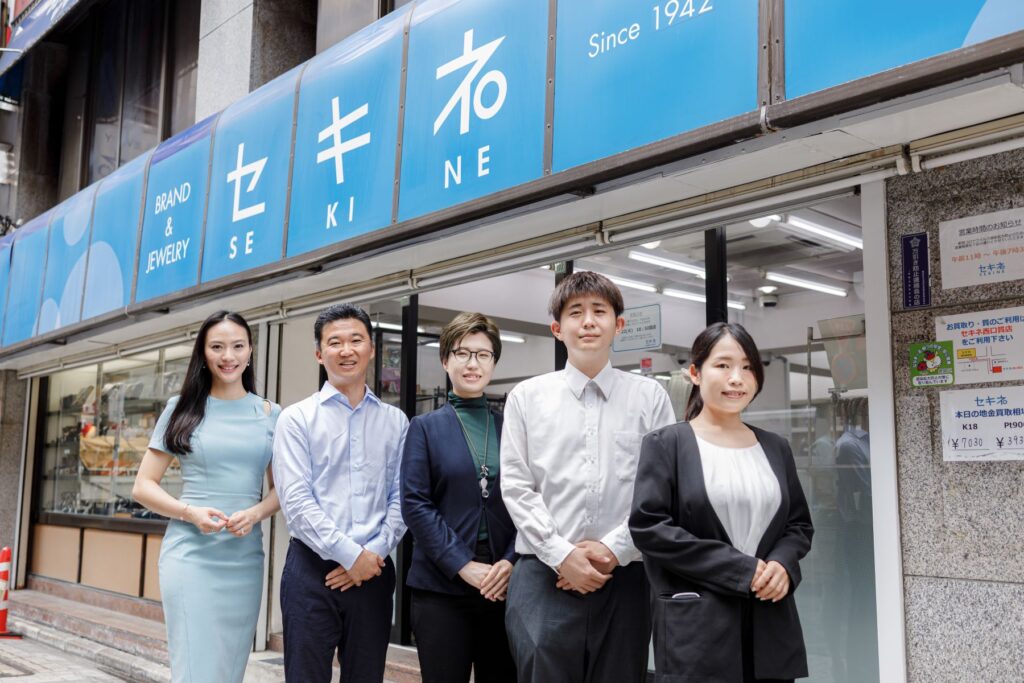
To this day, all the staff at Sekine are dedicated to continuing the legacy of the original founding philosophy to recognize and cherish the value of all secondhand items.
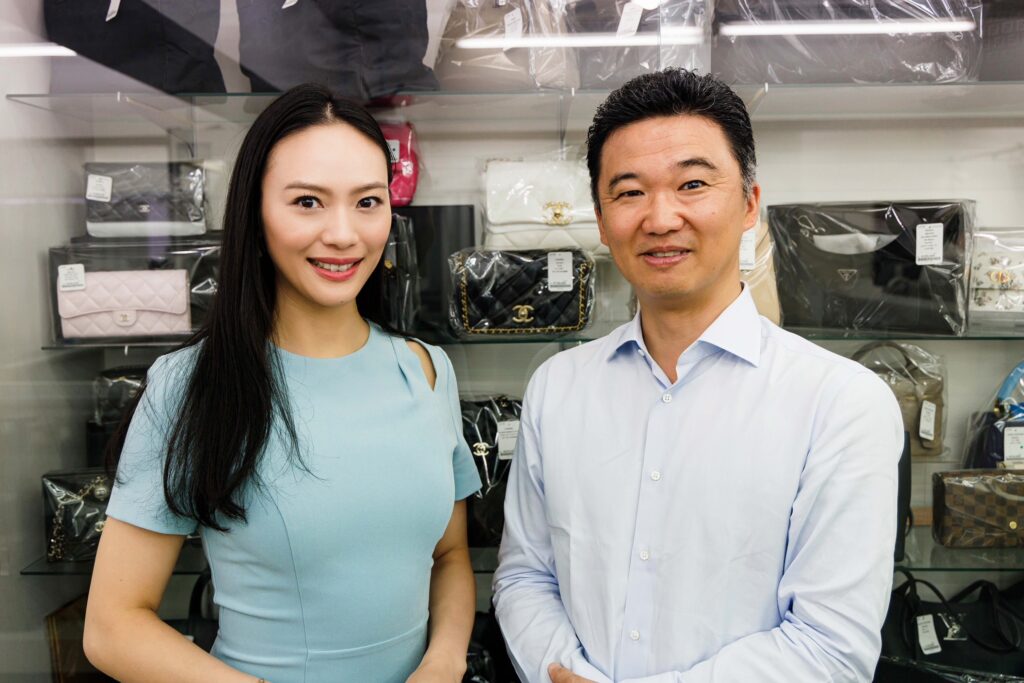
The Sekine Pawnshop is a family business that was established by Mr. Shimaji Sekine, the grandfather of the current CEO, Mr. Kazuyuki Sekine. Today, the business is co-managed by the two Sekine brothers, who are the third-generation leaders of the family business.
Join us on a journey through the history, culture, and treasures that await you at Sekine Pawnshop!
History of Pawnshops in Japan: The Origin of the Shichiya
Sekine has witnessed the fascinating evolution of the role of pawnshops in Japan throughout its long history. Pawnshops, known as “質屋” (shichiya) in Japan, trace their origins to the practice of receiving items in exchange for lending money equal to their value. Even if the borrower couldn’t repay the money, the pawnshop would take possession of the item without imposing additional collections or penalties. While the exact origin of pawnshops is a subject of debate, it is widely believed that they can be traced back to Japan’s Kamakura Period (鎌倉時代, 1185–1333), with some theories suggesting even earlier roots during Japan’s diplomatic missions to Tang China. As Japan transitioned from a barter-based economy to one reliant on currency, people found themselves owning possessions but lacking cash, turning to their families and, subsequently, local pawnshops for assistance.
The Role of Pawnshops in Japanese Society
Traditionally, Japanese pawnshops displayed a distinctive sign – a circle with the kanji character “質” (meaning “quality”), commonly known in the industry as “マル質” (Maru-ni-shichi) signage. These establishments became essential, allowing people to effortlessly exchange and retrieve items such as rice, miso, clothing, bedding, hanging scrolls, hairpins, combs, and more, in return for immediate funds to support their daily lives. This widespread presence of pawnshops gave rise to the saying, “庶民に質屋あり” (“Shomin ni shichiya ari”), which translates to “Pawnshops for the common folks.” As for why a circle is used, while it’s not precisely known, some speculate that since pawnshops deal with money (by providing loans), the “マル” (Maru, circle) could symbolize money (coins).
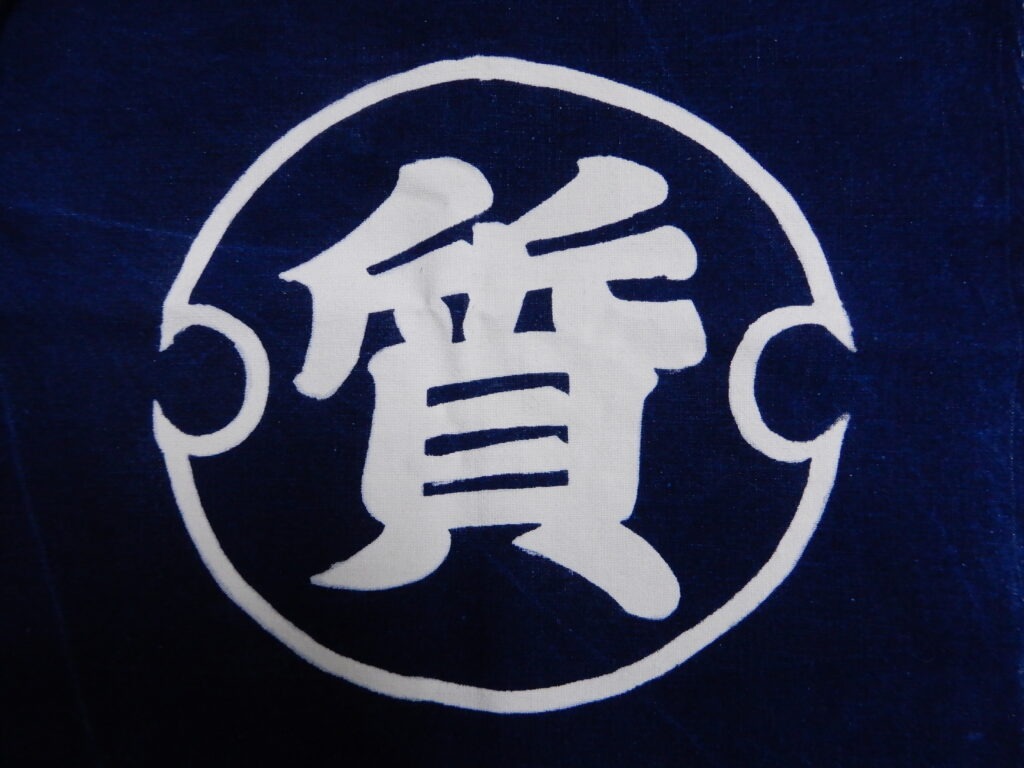
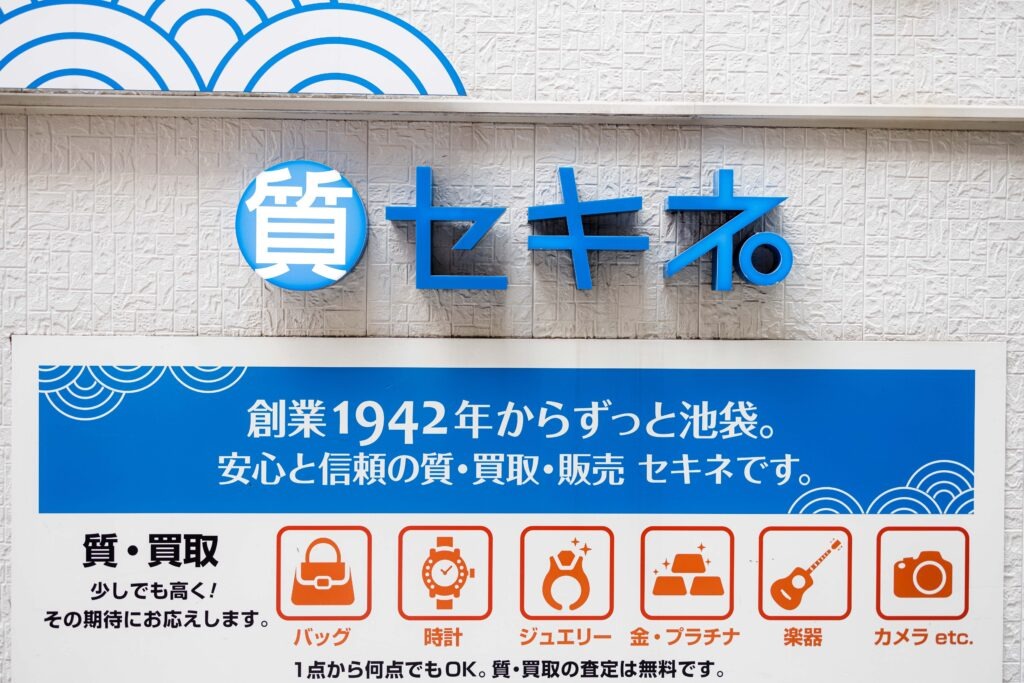
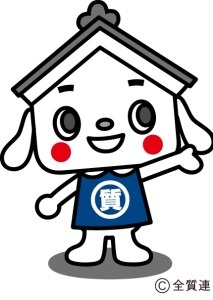
Japan is a country where mascots are everywhere, representing different groups and neighborhoods. In line with this tradition, Japan’s “Nationwide Pawnshop Union Alliance Society” has its own mascot character, a cute little guy named Shichimaru (しちまる). He wears an apron with the “マル質” (Maru-ni-shichi) logo and has a storehouse-shaped head – symbolizing the pawn warehouse.
Modern Day Pawnshops in Japan
In the 1960s, during Japan’s period of rapid economic growth, pawnshops primarily dealt with items like televisions, refrigerators, washing machines, and other household appliances, often referred to as the “three sacred treasures.” They also handled valuable and rare items such as precious metals, jewelry, art, antiques, clothing, bedding, and even daily necessities like pots and kettles. However, the rise of consumer finance companies in the 1970s led to a decline in pawnshop usage. Today, especially among younger generations, pawnshops may not be as familiar or accessible as in the past.
In response, modern pawnshops have adapted beyond the traditional “pawnbroker” model. They engage in activities such as item acquisition, sales, both online and in-store retail, all while leveraging their expertise in assessing item value. As these pawnshops evolve to meet contemporary needs, they aim to become a relevant and approachable part of people’s lives, embodying a new image as “a trusted presence for the common people.” This transition marks the inception of pawnshops gaining recognition for the retail of secondhand luxury products in Japan.
Sekine’s Enduring Tradition: The Heart of Pawnbroking and Circular Economy in Japan
Sekine’s stores have seen a wide variety of items for pawn over the years. Mr. Sekine told me some amazing stories about the most extraordinary and unusual items that his store has dealt with. Once, someone brought in a whole ivory tusk. Another time, someone wanted to pawn themselves! Of course, Sekine’s staff always politely refused to take people as collateral.
Mr. Sekine told me some amazing stories about the most extraordinary and unusual items that his store has dealt with. Once, someone brought in a whole ivory tusk. Another time, someone wanted to pawn themselves! Of course, Sekine’s staff always politely refused to take people as collateral.
Remarkably, to this day, Sekine’s primary business remains centered around pawnbroking (short-term money lending), serving the local community with consumer financing. Unlike bank loans, customers entrust their items to the pawnshop for a short-term loan. They can retrieve their deposited items by repaying the borrowed amount with interest. If the money cannot be repaid, the pawnshop will sell the items in their possession for cash. This system has provided a safe financial option for many people, and it continues to be utilized regularly.
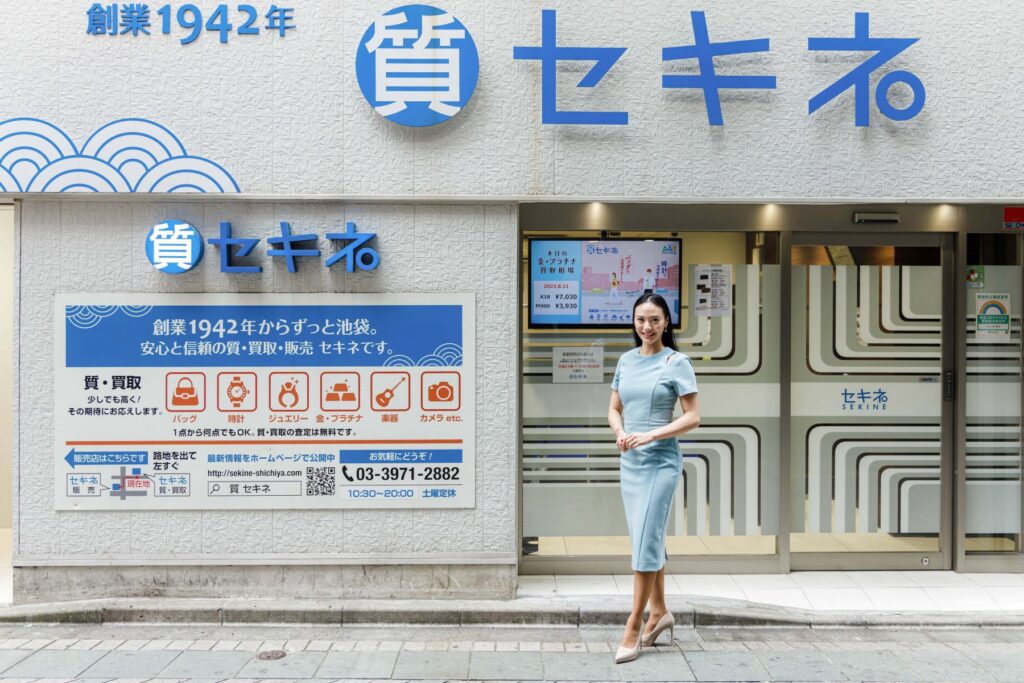
In front of Sekine’s pawnbroking office, which continues to be the primary business of the Sekine Pawnshop and serves Japanese customers with essential consumer financing services to this very day. However, this service is not available for foreign visitors. But tourists can still benefit from it, because the pawnbroking side of Sekine ensures that the products on the shelves of its secondhand retail stores are priced low as they are able to source high quality goods directly from the original owner or from professional auctions.
While the growing awareness of sustainable shopping practices is positively impacting the secondhand luxury goods market in Western society, Japan has, in essence, practiced a form of a circular economy for centuries. Goods have been reused and recycled rather than discarded, contributing to waste reduction and resource conservation for centuries with their unique shichiya ecosystem.
The Secret to Enduring Success: Expert Appraisers and Customer-Centric Service
With an illustrious 80-year history, Sekine is a pawnshop institution that has stood the test of time. The Ikebukuro West Gate Store, a cornerstone of the brand, has been rooted in the same location for over 60 years! In an age where secondhand retailers can spring up and fade away almost overnight, it’s remarkable how Sekine has persevered through economic downturns and global events. I sought insight from the Ikebukuro Store Manager, Ms. Suzuki, in the hopes of uncovering their secret to enduring success.
Ms. Suzuki stressed that trust is the key factor in the resale of second-hand luxury items. The Sekine Pawnshop puts this trust first to ensure the satisfaction of all customers. Without this foundation of reliability, no pawnshop or secondhand reseller could succeed. To achieve this level of trust, the staff and professional appraisers at Sekine carefully inspect and maintain every item, delivering high-quality second-hand products. As a result, the number of customers who complain or return a purchase from Sekine is very low.
Furthermore, Sekine goes above and beyond to ensure that their secondhand items are in prime condition before hitting the shelves for resale. While many secondhand shops simply resell products in the same condition as they are received, Sekine takes the additional step of sending items for professional cleaning and, at times, even restorative work, which can amount to several hundred USD in expenses covered by the shop itself.
The rationale behind this is straightforward – they prioritize customer satisfaction and aim to provide shoppers with the finest experience when making secondhand purchases.
Understanding the Ranking System for Secondhand Luxury Goods in Japan
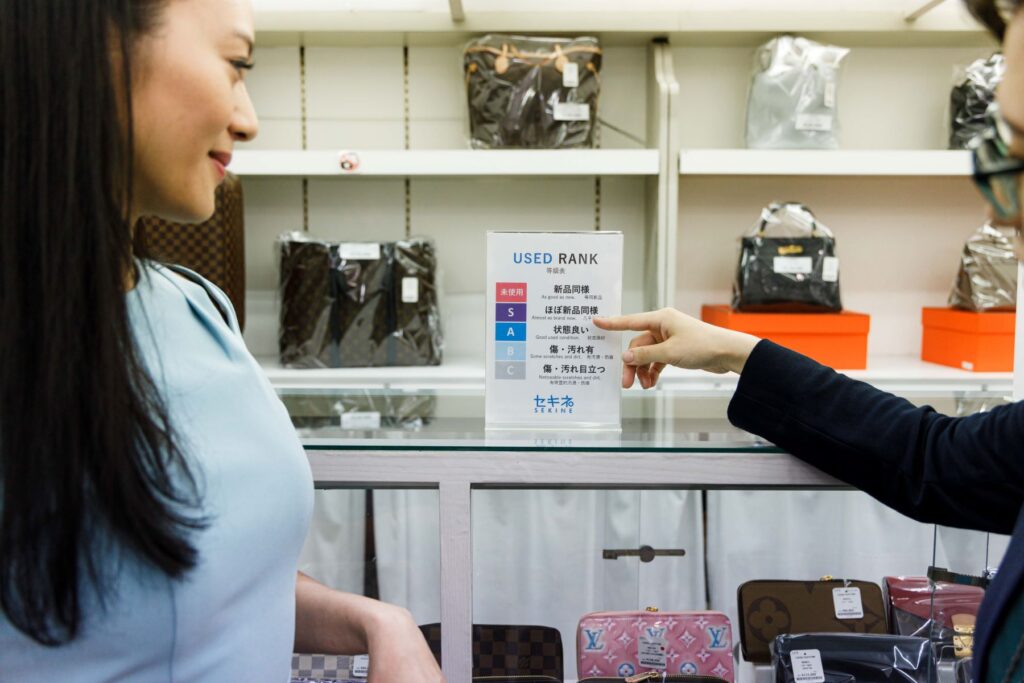
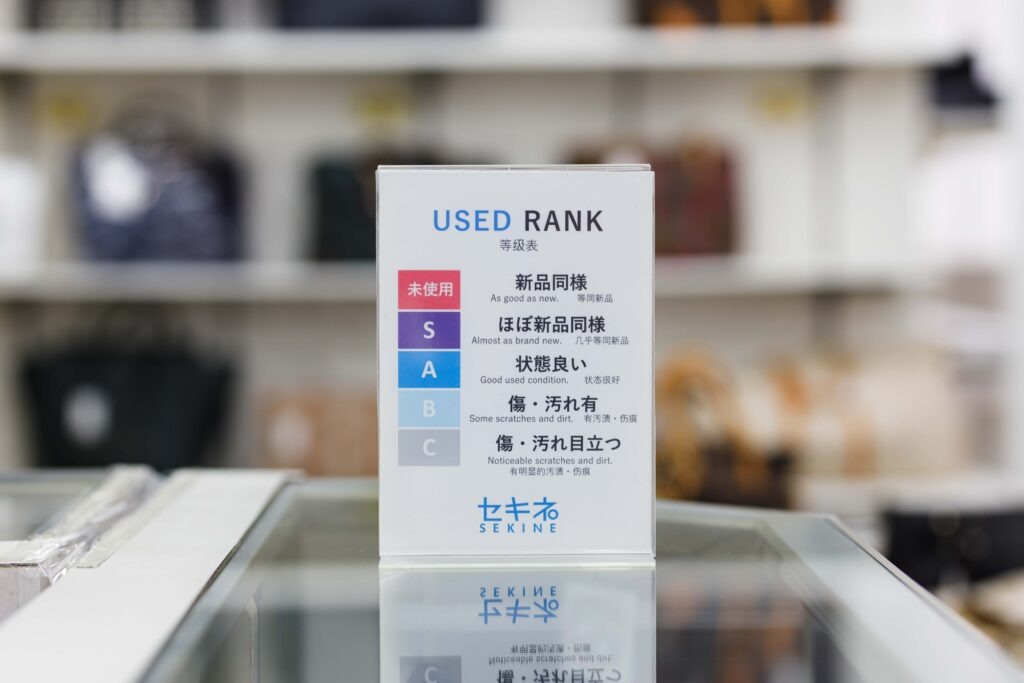
Secondhand luxury goods come with varying price points for a multitude of reasons, and at Sekine, they employ a ranking system commonly adopted by many pawnshops and secondhand resellers in Japan.
未使用 (Unused, sometimes labelled “N”) – As Good As New (Not Used By All Retailers)
“Unused” or “N” grade items are essentially new and show no signs of wear. Dealers classify these items as unused or in mint condition, although they may occasionally exhibit minor storage-related characteristics, such as a faint dust odor from prolonged indoor storage. These conditions are usually momentary and barely noticeable. Depending on the rarity and age of the model, “N” grade items can often command prices significantly higher than the original release price of the item.
S – Almost Brand New
“S” grade items typically exhibit no wear or defects and appear practically new. In rare instances, they may have minor imperfections, like a subtle fragrance or inconspicuous signs of wear. Careful reading of the retailer’s description is important to ensure the item meets your desired condition. Alongside “N” grade items, these are among the most expensive secondhand items.
A – Good Used Condition (Very Light Signs of Wear)
“A” grade items usually have very minor defects that do not draw attention, such as nearly imperceptible stains or marks in concealed areas, small or light scratches in less visible spots, or occasional fabric pilling. “A” grade bags and accessories often appear genuinely splendid, sometimes resembling new items. While the price reflects their excellent condition, it still significantly undercuts the cost of the same new article.
B – Some Scratches and Dirt (Acceptable with Some Signs of Wear)
“B” grade items are considerably cheaper compared to the boutique’s retail price and presents the most opportunities for bargains! Items in this range vary from nearly pristine condition, akin to “A” bags, to those that are somewhat worn but overall acceptable. Shoppers can find bags with small to medium defects, including subtle exterior stains not immediately noticeable, interior stains, minor corner abrasions/scratches, signs of use, distinct odors (perfume, smoke, powder), and slight discolorations, among others. In most cases, cracks are absent. It is crucial to carefully inspect the item and review the seller’s description. Fortunately, Sekine’s staff is diligent in pointing out all defects for transparency. While these secondhand products aren’t perfect, you can discover many in excellent condition at very reasonable prices.
C – Noticeable Scratches and Dirt (Somewhat Run-Down)
“C” grade items encompasses extensive discolorations, medium to large-sized scratches or cracks, holes in the zipper tape, strong odors inside the bag, significant dustiness or dirtiness, internal stains, color transfer on the bag’s exterior, and other highly visible aesthetic defects. Items in this category understandably command much lower prices than those in higher categories. They may not be brand new, but they could appeal to those seeking branded goods for personal refurbishment at a relatively low cost.
Dedication to Quality and Value: In-House Expert Buyers and Appraisers
As the secondary market for branded goods continues to surge in popularity, Japan has seen an influx of professional purchasing services specializing in these items. However, what truly distinguishes Sekine from other secondhand luxury stores is its identity as a pawnshop, enabling them to maintain their in-house team of appraisers and a rigorous authentication process.
These experts possess the essential training, education, and qualifications to meticulously assess the authenticity and monetary value of branded products. This entails a comprehensive understanding of product condition, manufacturers, logos, designs, rarity, and market trends. Sekine also invests in cutting-edge equipment to provide their appraisers with the latest technology to enhance their authenticity tests.

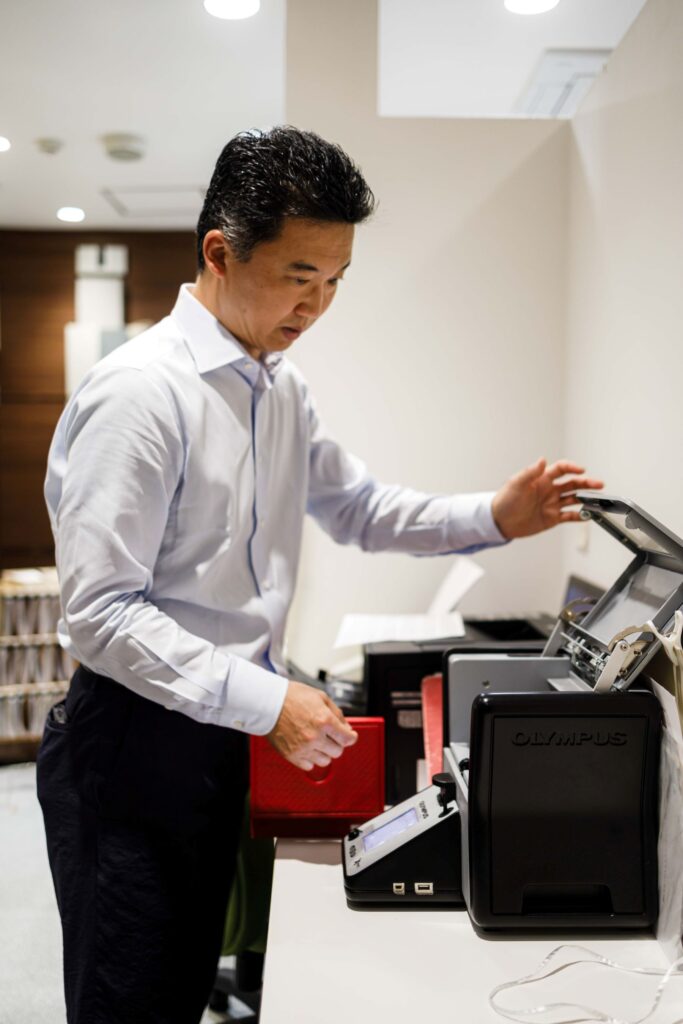
Mr. Sekine demonstrates how the pawnshop’s professional appraisers scrutinize the metallic components in watches, enhancing their authenticity checks. A specialized machine scans the watch, offering a detailed breakdown of the various precious metals present, which appraisers use as one of their tools to determine the watch’s authenticity when customers bring them in for pawning.
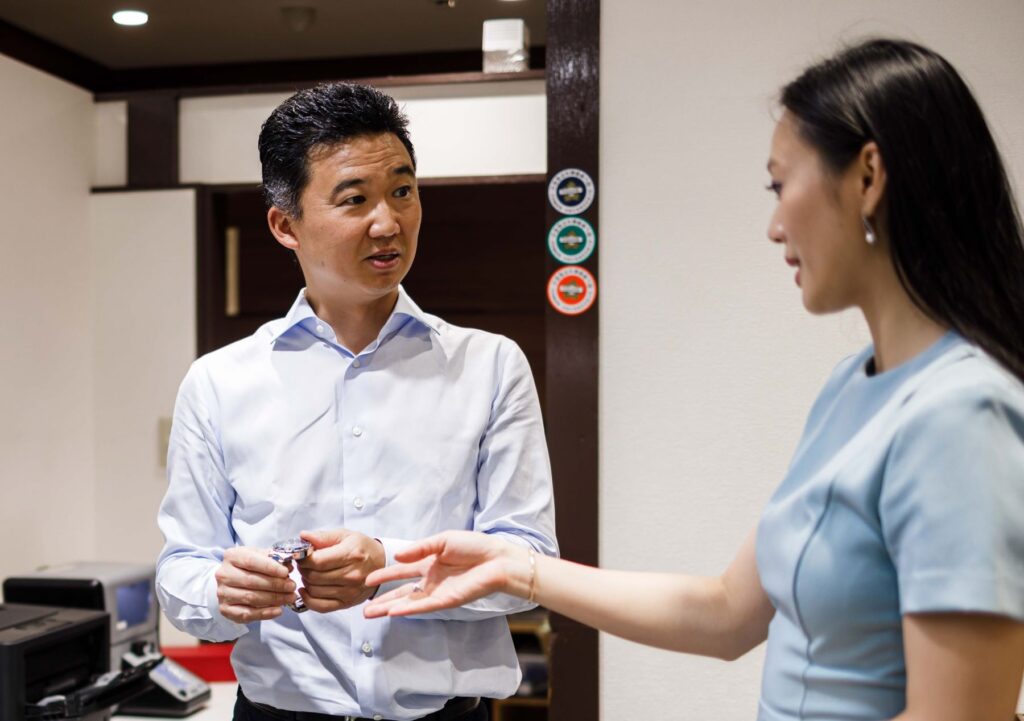
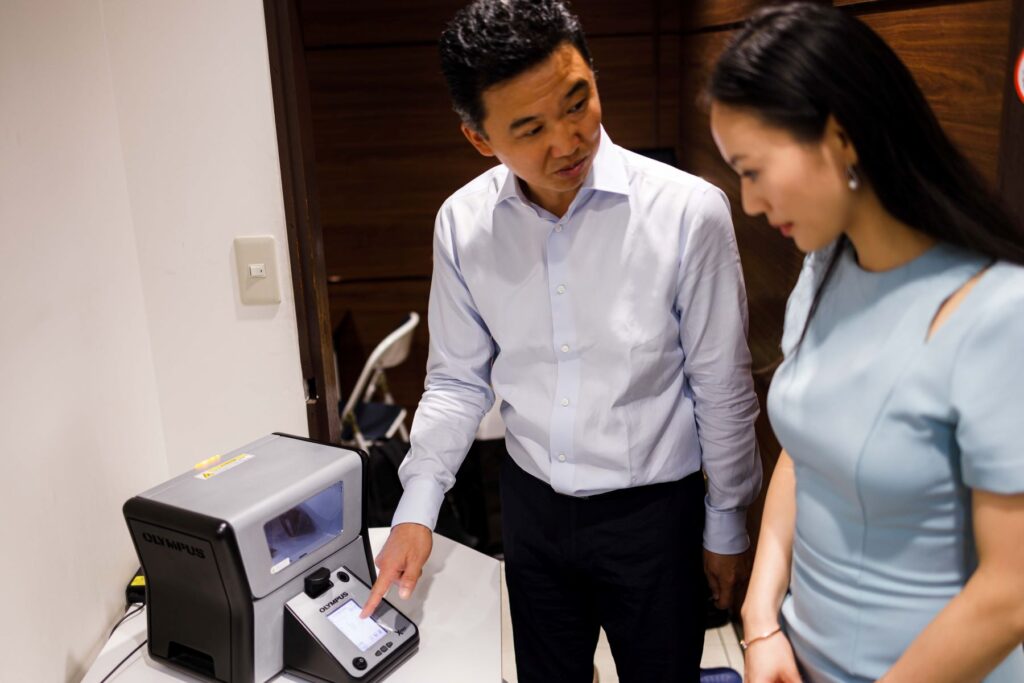
At Sekine, every item undergoes not just one, but at least two to three expert appraisals before earning a spot on the shelves.
Furthermore, Sekine proudly holds membership in the Japan Pawnshop Brand Quality Association (officially called the “Anti-Trading Fakes,” ATF), an organization setting stringent standards to combat counterfeit branded goods in pawnshops. Consequently, Sekine is renowned in the industry for maintaining some of the strictest authentication standards and for leading the fight against counterfeit products.
What might be classified as an ‘A’ product elsewhere could earn a ‘B’ rating at Sekine. This guarantees that you will discover some of the finest quality products at reasonable prices when you shop at the Sekine Pawnshop!
This unique advantage makes Sekine stand out from the rest, as they can maintain high standards and offer competitive prices. Sekine’s prices are often lower (sometimes 5~10% lower) than large chain stores like Komehyo or Daikokuya.
When it comes to safety and peace of mind, buying from a trustworthy establishment like Sekine with professional credentials and a proven history of customer satisfaction is essential for treasure hunters looking for preloved luxury goods.
Real or Fake? – How to Authenticate a Louis Vuitton Bag
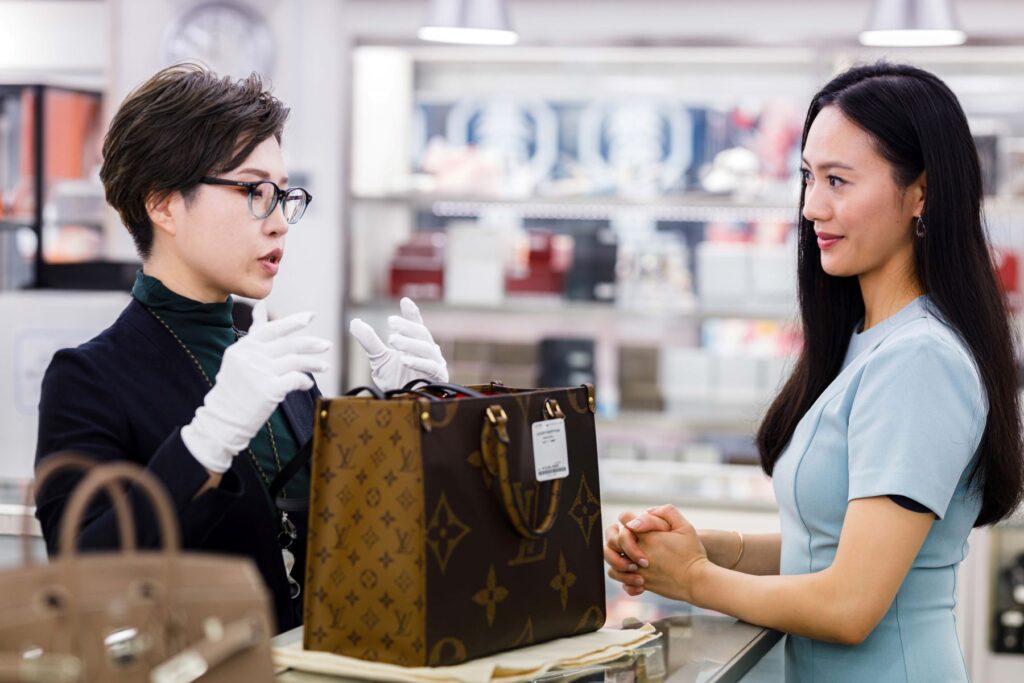
One of the foremost concerns for shoppers at a secondhand store is distinguishing between genuine and counterfeit designer items. But how can you discern an authentic designer brand from a fake one?
Ms. Suzuki guided me through the process of authenticating a secondhand Louis Vuitton bag, with tips that even regular shoppers can use!
1. Examine the Logo and Monogram
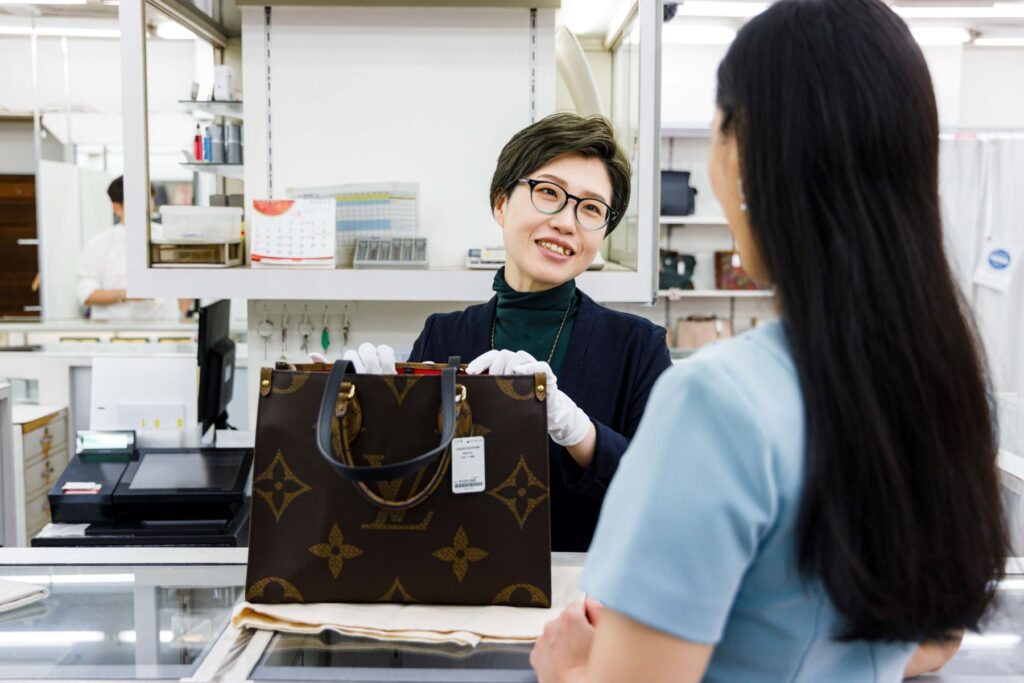
Louis Vuitton takes immense pride in its iconic logo, which is why an authentic item never has any portions of it concealed by handles, stitching, or leather pieces to hold the handles. This rule applies even to items from special designer collaborations, so be attentive to the appearance of the logo.
2. Scrutinize the Stitching and Texture of Engraved Patterns
On classic brown Louis Vuitton bags, the stitching should have a mustard yellow color, not a bright yellow hue. It should display impeccable consistency in stitch size, spacing, and quality. Any loose threads should raise suspicions.
When assessing the engraved monogram pattern, genuine engravings exhibit a heightened prominence as they are meticulously carved deeper into the leather. Conversely, replica patterns often appear considerably flatter.
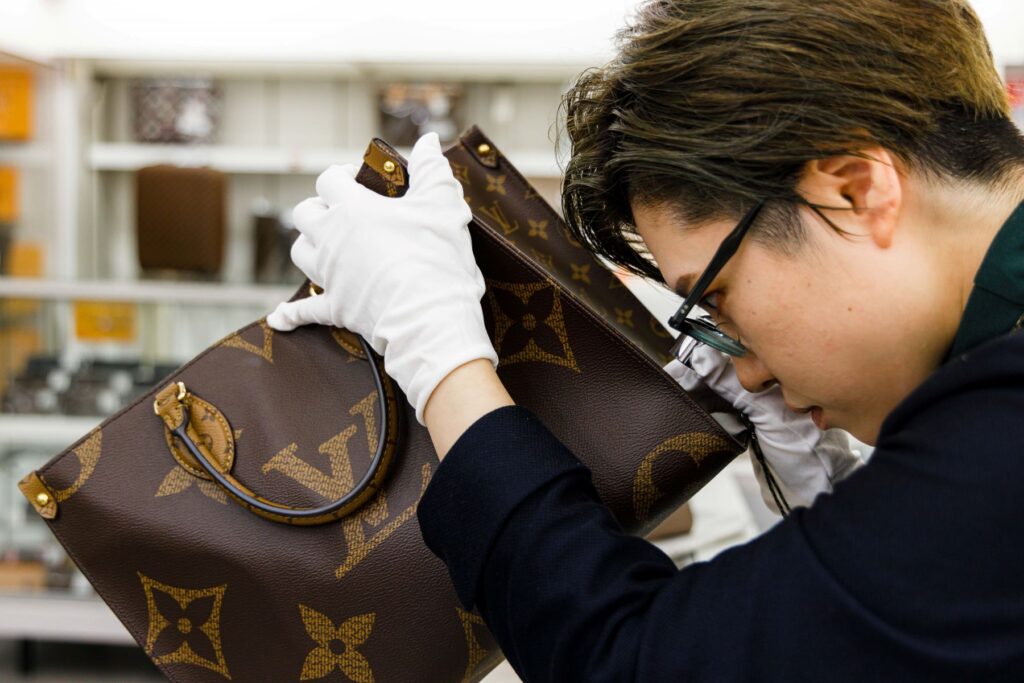
Furthermore, another telltale sign lies in the texture of the leather. Upon close examination using a loupe (a small magnifying glass employed by jewelers and watchmakers), authentic Vachetta leather showcases a more pronounced textured effect, setting it apart from the less textured surface of counterfeit handbags.
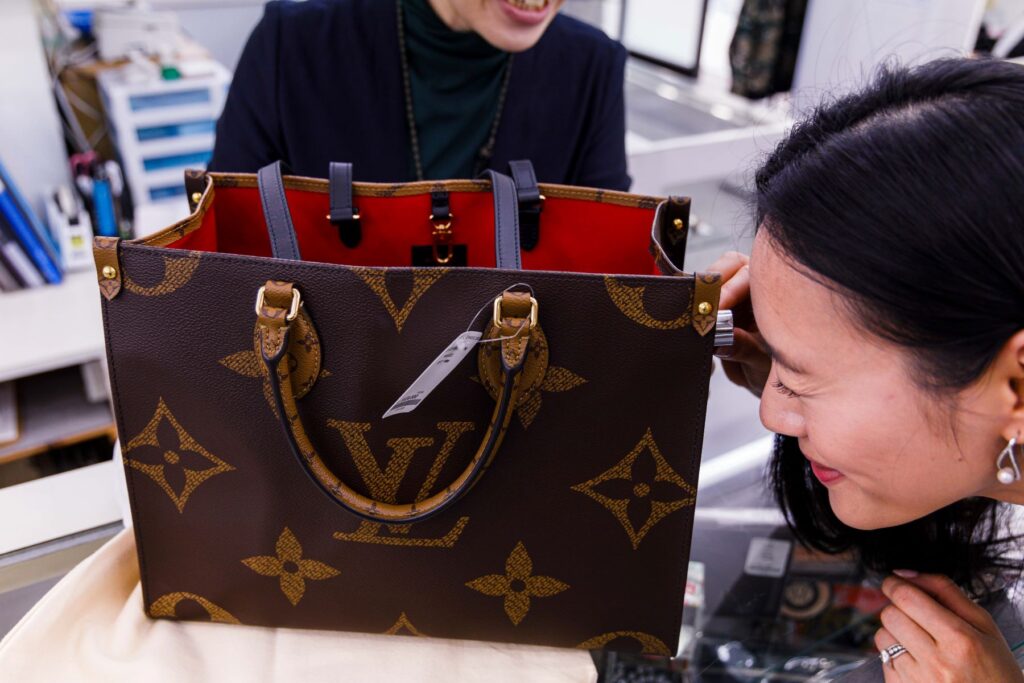
3. Search for Internal Stamps
Louis Vuitton items do not come with authenticity cards. To verify the bag’s authenticity, the manufacturer places a unique stamp with a location and date code on the bag’s interior. Today, LV bags are manufactured not only in France but also in the USA, Italy, Switzerland, Germany, and Spain. Each country has its distinctive code.
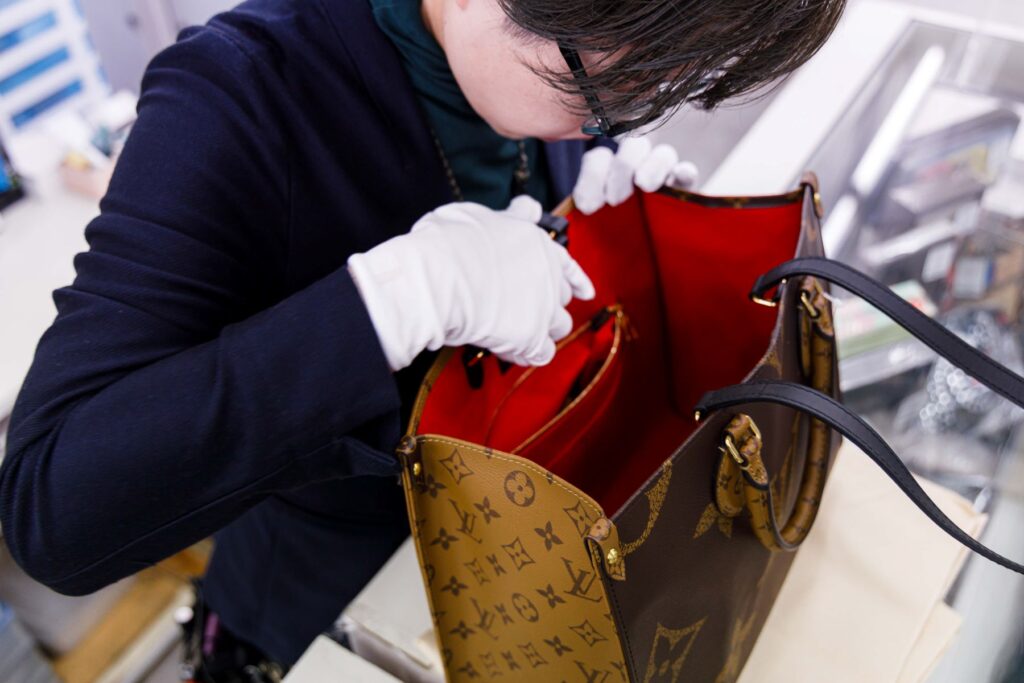
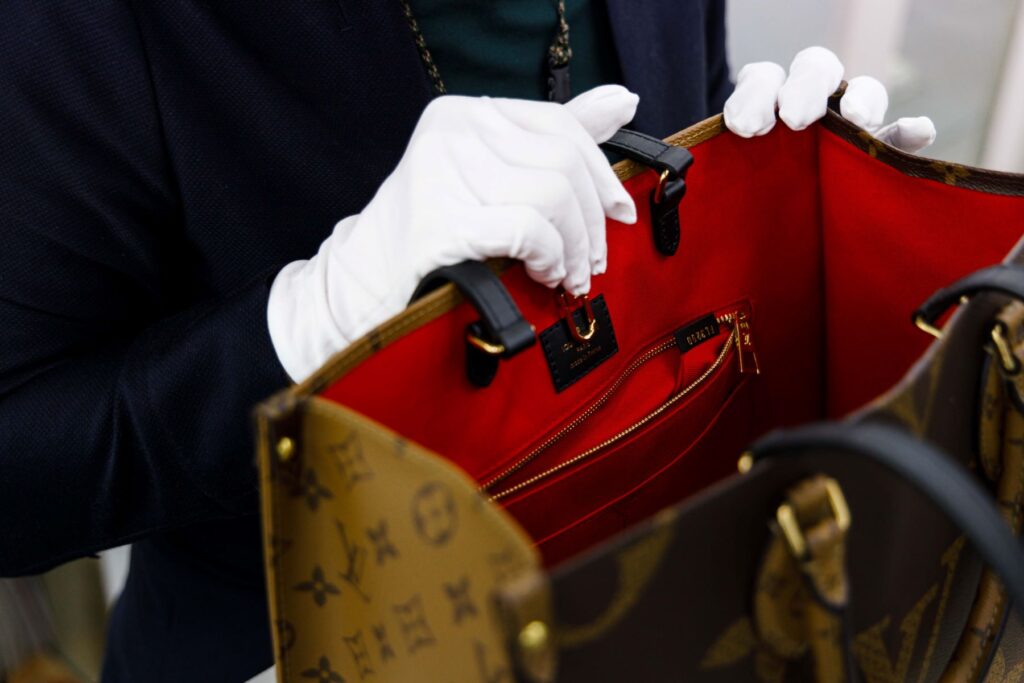
Since 1983, Louis Vuitton has employed a six-character date code stamp for its handbags. The first two characters are letters (indicating the place), while the remaining four characters are numbers (indicating the month and year of production). However, the company periodically updates its coding. Since 2007, the digit code has represented the week number of the year when the item was produced. More recently, all items manufactured since 2021 now feature microchips programmed with unique digital IDs on a private blockchain owned by LVMH.
Taking It A Step Further: Impeccable Gift Wrapping
Once you’ve made your choice among their pre-loved treasures, Sekine offers gift wrapping upon request! Ms. Suzuki said that many of their customers buy branded items as a special treat for themselves, often for the first time. Seeing the happiness on customers’ faces when they get their beautifully wrapped purchases is what motivates the whole Sekine team.
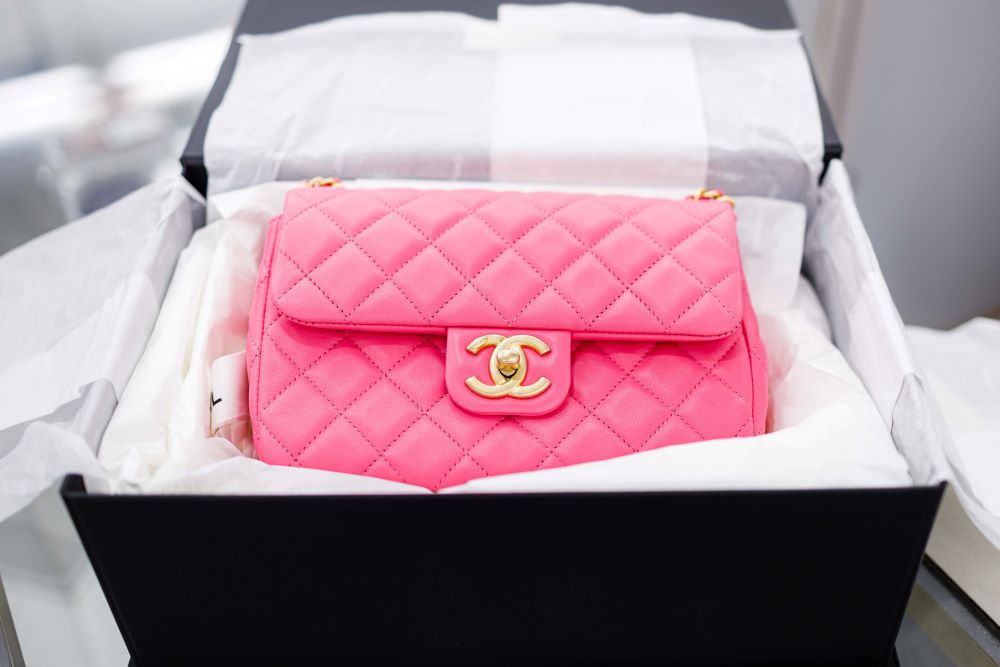
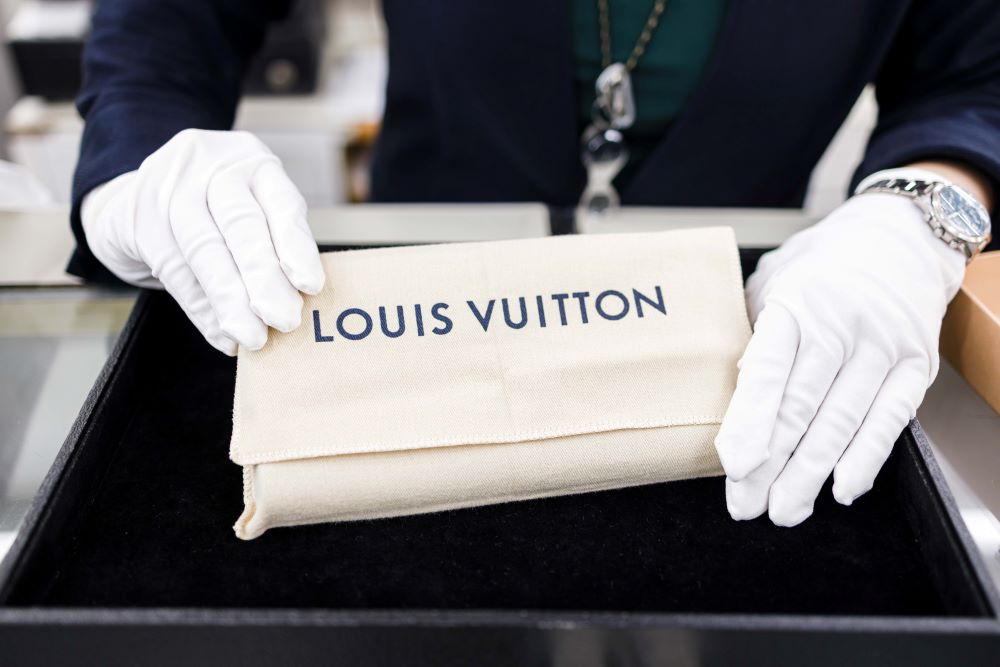
Sekine is also recognized for its excellent after-purchase services, including a warranty period* of 6 months and ongoing maintenance and repair services. Such comprehensive services are quite rare, especially compared to secondhand stores in other countries where such services are not available!
* Warranty certificates are provided for watches priced at 20,000 yen or more. However, some items such as radio-controlled watches are not covered by the warranty.
Discover Tokyo’s Pre-loved Luxury at the Sekine Pawnshop’s Ikebukuro West Gate Store
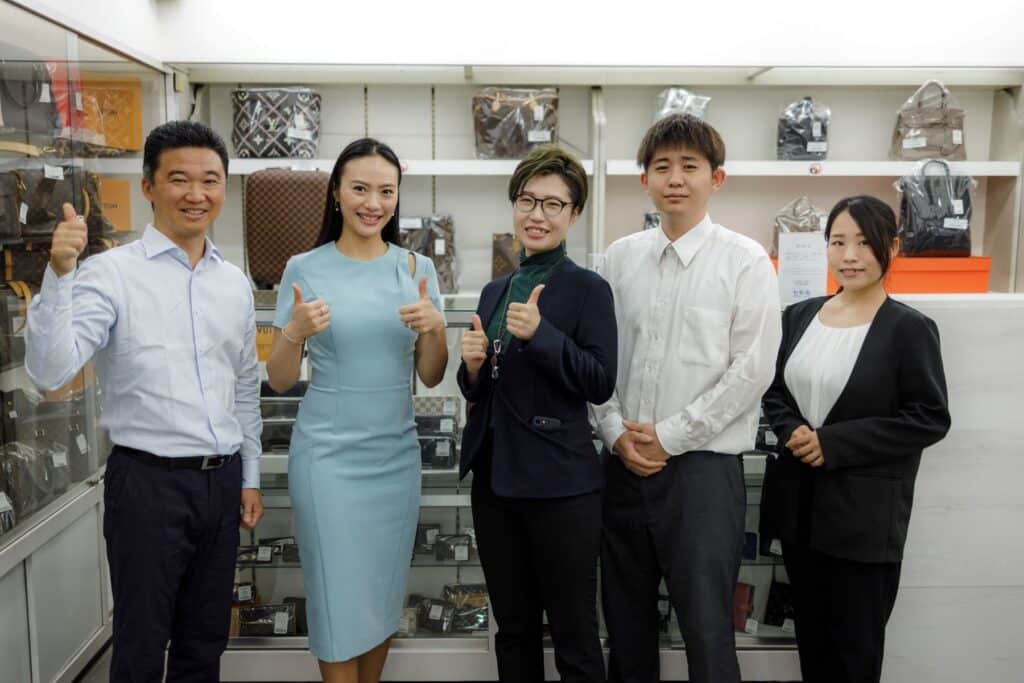
In the busy Ikebukuro district of Tokyo, a hidden treasure awaits those who love pre-loved luxury items. Sekine Pawnshop is the ultimate destination for authentic luxury finds, where history, culture, and secondhand luxury come together. You can also enjoy the tax-free shopping perks that are only for foreign visitors, making your shopping experience even sweeter!
The trend towards sustainable fashion and conscious consumption has increased the global demand for pre-owned luxury goods, and Tokyo, as a fashion capital, offers a unique chance to find rare and well-preserved items. At the Sekine Ikebukuro West Gate Store, one of the oldest pawnshops and secondhand luxury stores in Tokyo, I explored a world of authentic, high-quality pre-loved luxury items.
On your next trip to Tokyo, why not visit the Ikebukuro area and the Sekine West Gate Store? Ikebukuro is known as the unofficial Chinatown of Tokyo, and many Michelin star ramen shops are nearby, including Nakiryu – you can read my blog post on their mouth-watering tantanmen noodles here.
Sekine stands out in Tokyo’s secondhand luxury retail industry by having its own team of expert appraisers and a strict authentication process. Each item goes through at least two to three expert evaluations before being displayed on the shelves. Sekine’s commitment to authenticity and quality, along with its membership in the Japan Pawnshop Brand Quality Association (ATF), ensures customers get only the best pre-loved luxury products at the best prices.
Another amazing thing that makes Sekine different is its effort to present items in near-perfect condition. Unlike many secondhand shops, Sekine invests in professional cleaning and sometimes restoration work to give customers the best possible experience. They even offer gift wrapping for that extra touch of joy.
Visiting Sekine during your trip to Tokyo is more than just a shopping experience; it’s a journey into the history and culture of Japan’s pawnbroking industry and its role in preserving luxury goods for future generations.
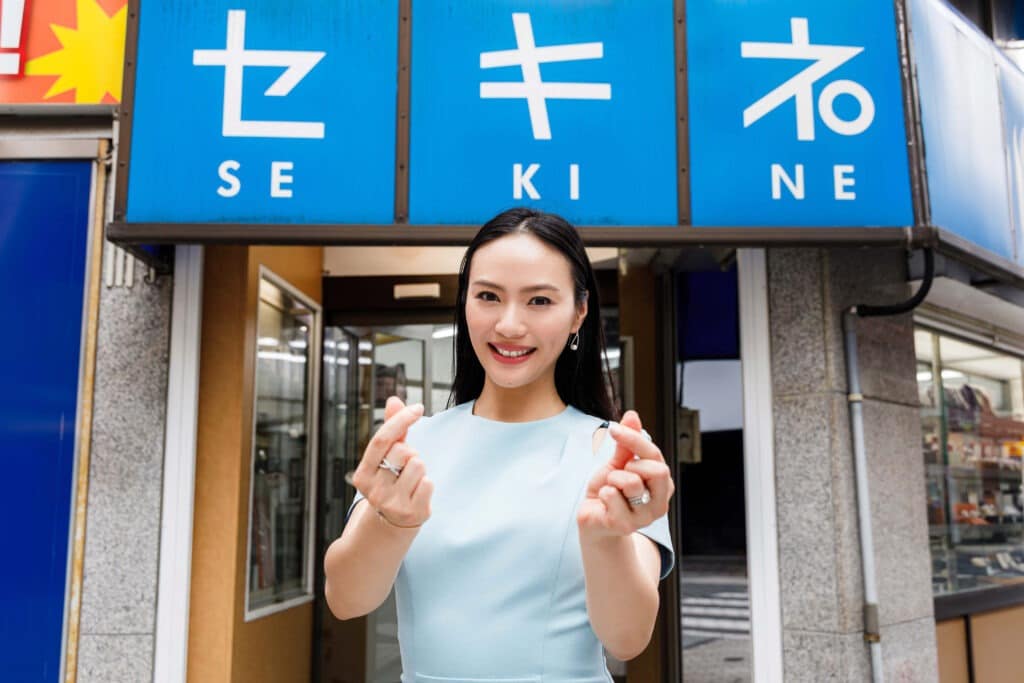
Sekine Pawnshop Store Information
Indulge in pre-owned luxury redefined on your next trip to Tokyo! The staff at Sekine will be waiting to welcome you!
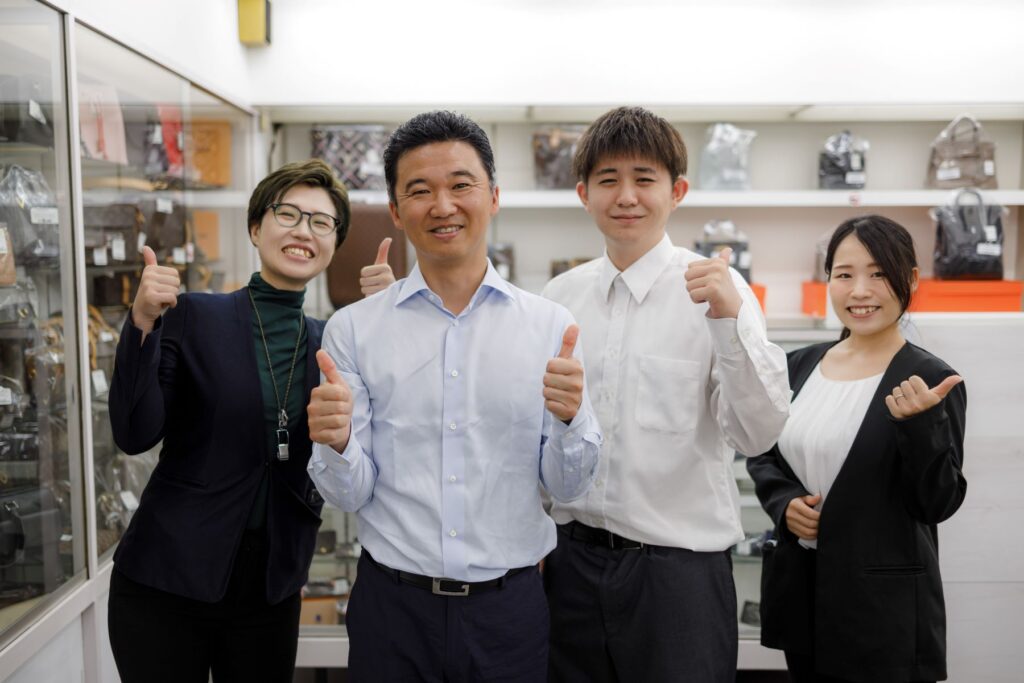
Message from Ms. Suzuki, Sekine Ikebukuro West Store Manager: “When it comes to pawnshops in Tokyo, particularly in the vibrant Ikebukuro district, Sekine is the go-to name. We’ve earned a strong reputation in this community, with a dedicated customer base who consistently laud our offerings for their cleanliness and affordability compared to other establishments. To newcomers and first-time visitors, we extend a warm invitation to explore Sekine’s exceptional range of products.”
<Sekine Pawnshop, Ikebukuro West Gate Store>
Address: 1-chōme-36-2 Nishiikebukuro, Toshima City, Tokyo 171-0021
Nearest Station: 3-minute walk from Ikebukuro Station West Exit
Business Hours: 11:00 AM to 7:30 PM
Closed on: Open all year round (Irregular closures for summer holidays, etc.)
Website: https://sekine-shichiya.com/
{Japanese Only, English and Chinese Websites Coming Soon!}
Google Map: https://goo.gl/maps/wtZmwt6hxA5f8t5o6
<OTHER STORES>
Sekine Pawnshop, Shinjuku Store
Address: 3-chōme-24-11 Shinjuku, Shinjuku City, Tokyo 160-0022
Nearest Station: 2-minute walk from Shinjuku Station East Exit
Business Hours: 11:00 AM to 7:30 PM
Closed on: Open all year round
Google Map: https://goo.gl/maps/fndkFCCJxHJFLGNJ8
Sekine Pawnshop, Shibuya Store
Address: 2-chōme-29-12 Dōgenzaka, Shibuya City, Tokyo 150-0043
Nearest Station: 4-minute walk from Shibuya Station Hachiko Exit
Business Hours: 11:00 AM to 7:40 PM (Closed on Saturdays)
Google Map: https://goo.gl/maps/3NRmFV9LrUEMYkCY8

